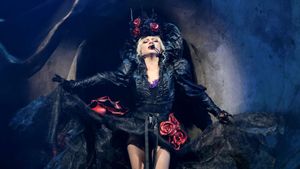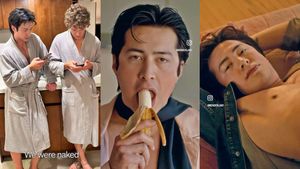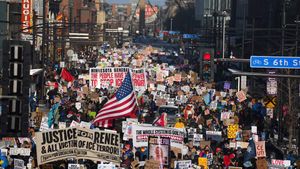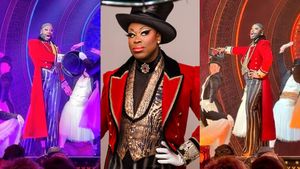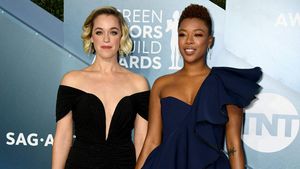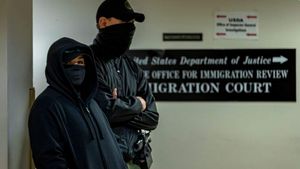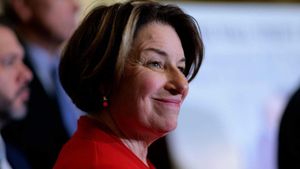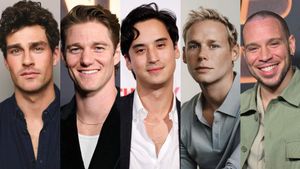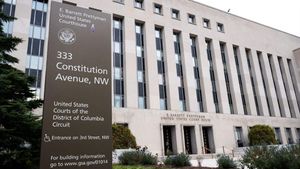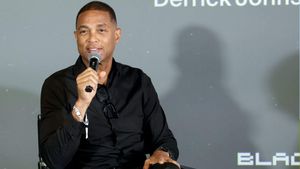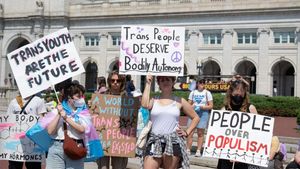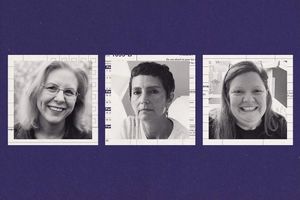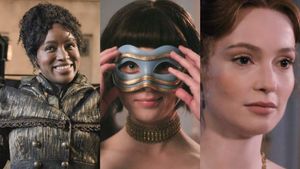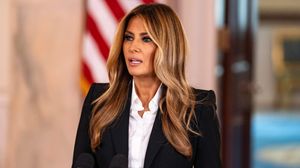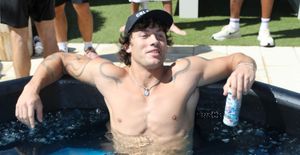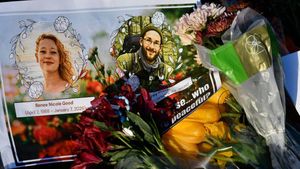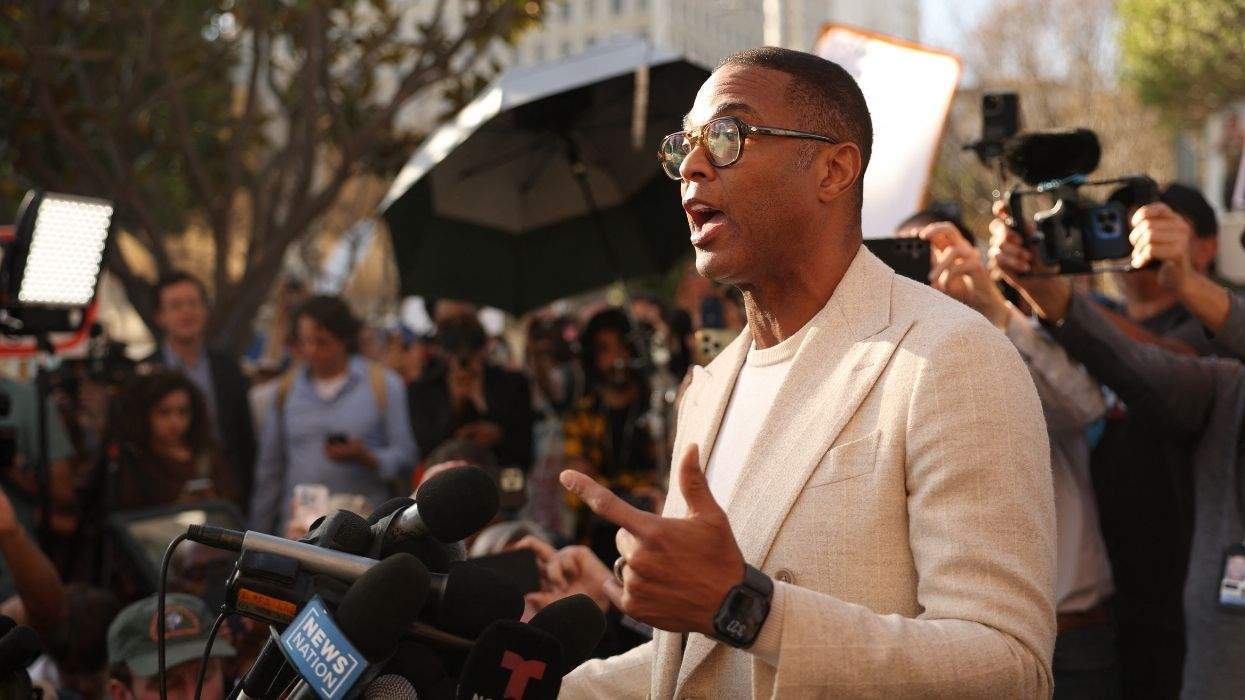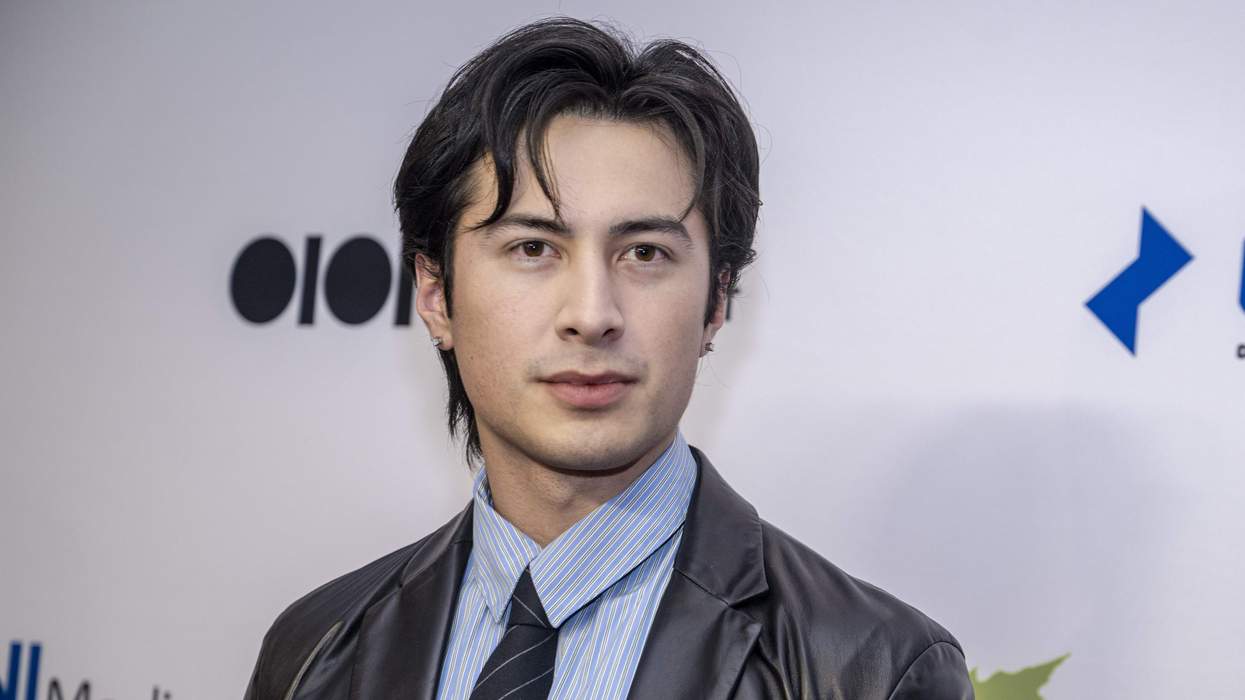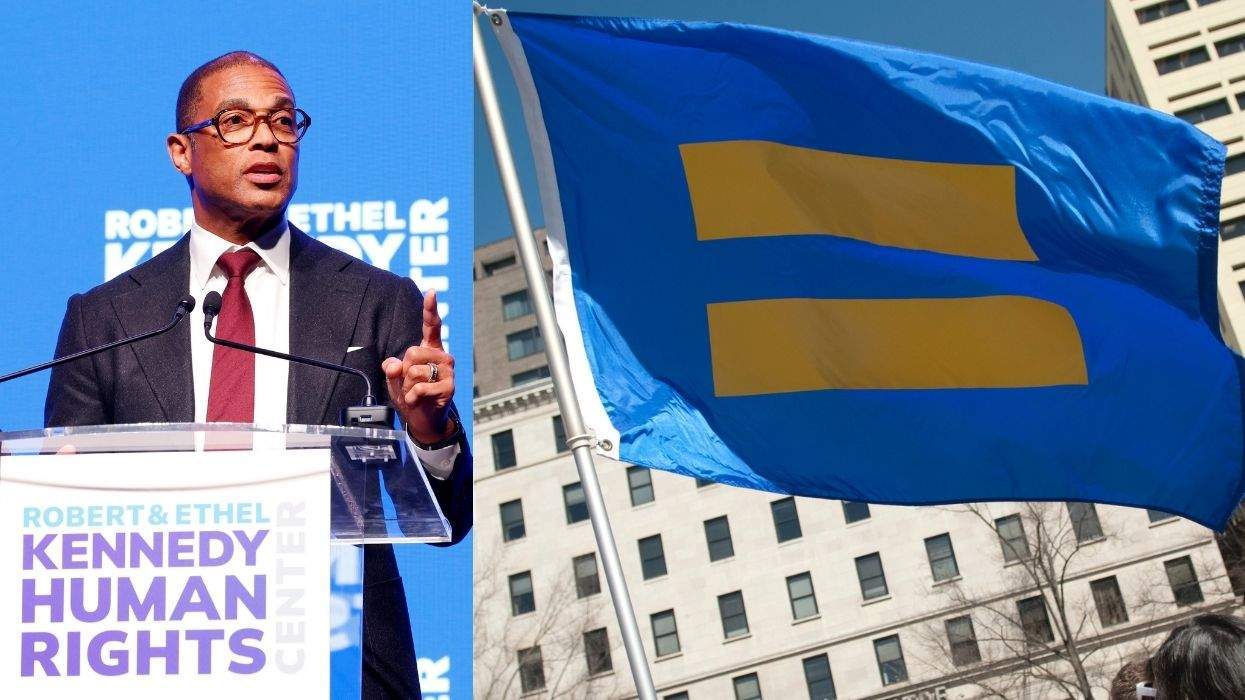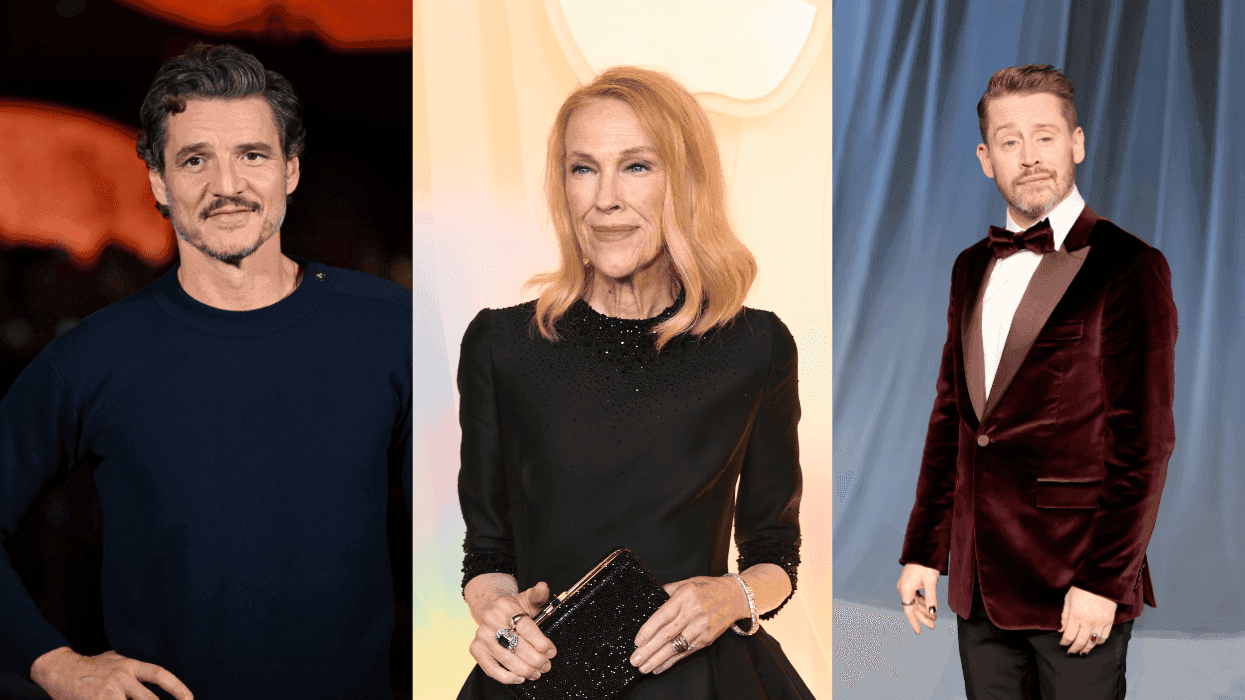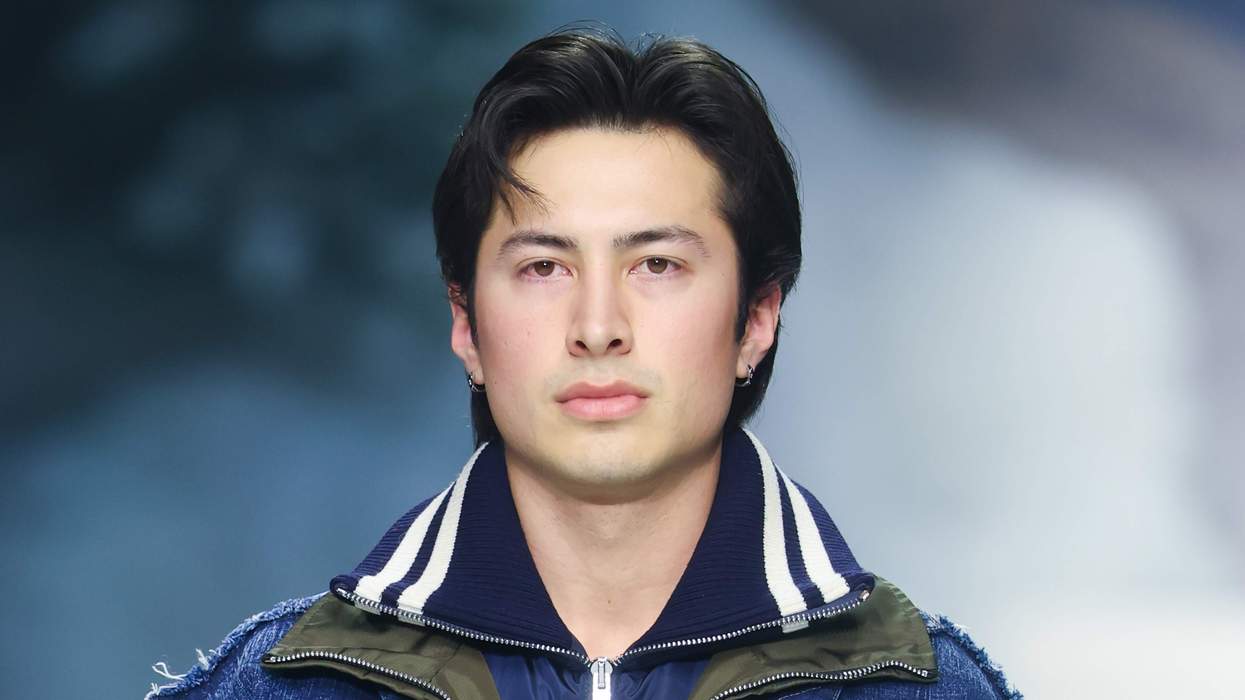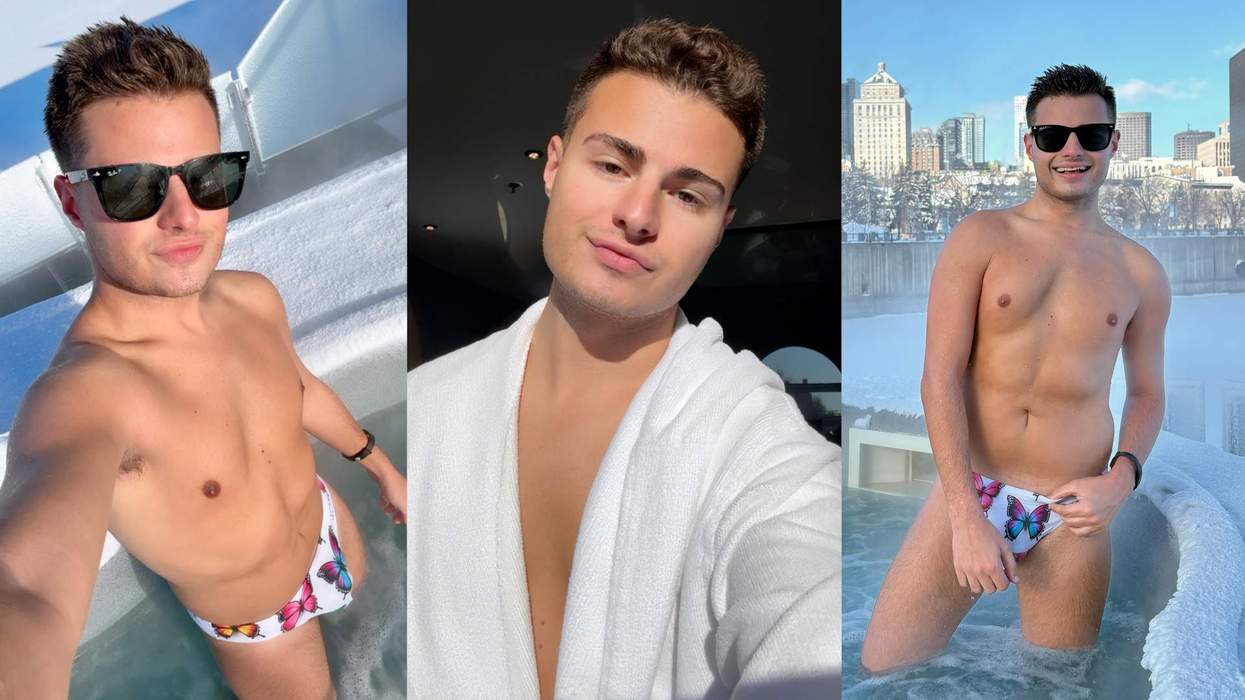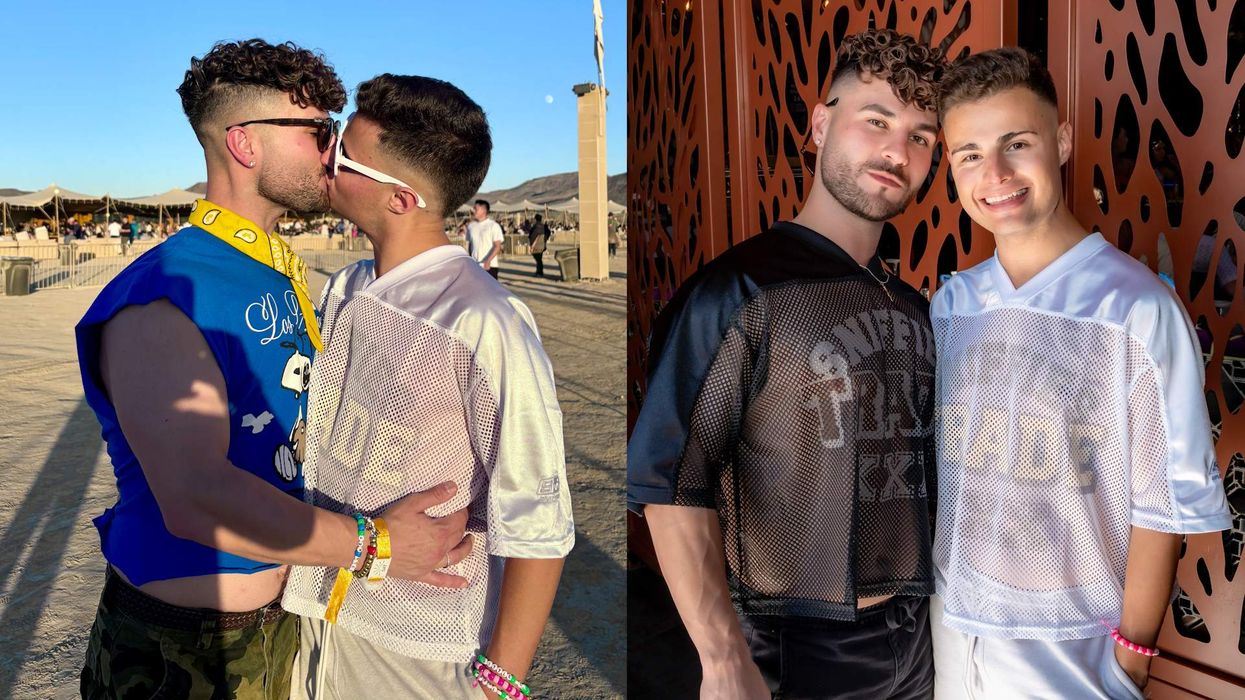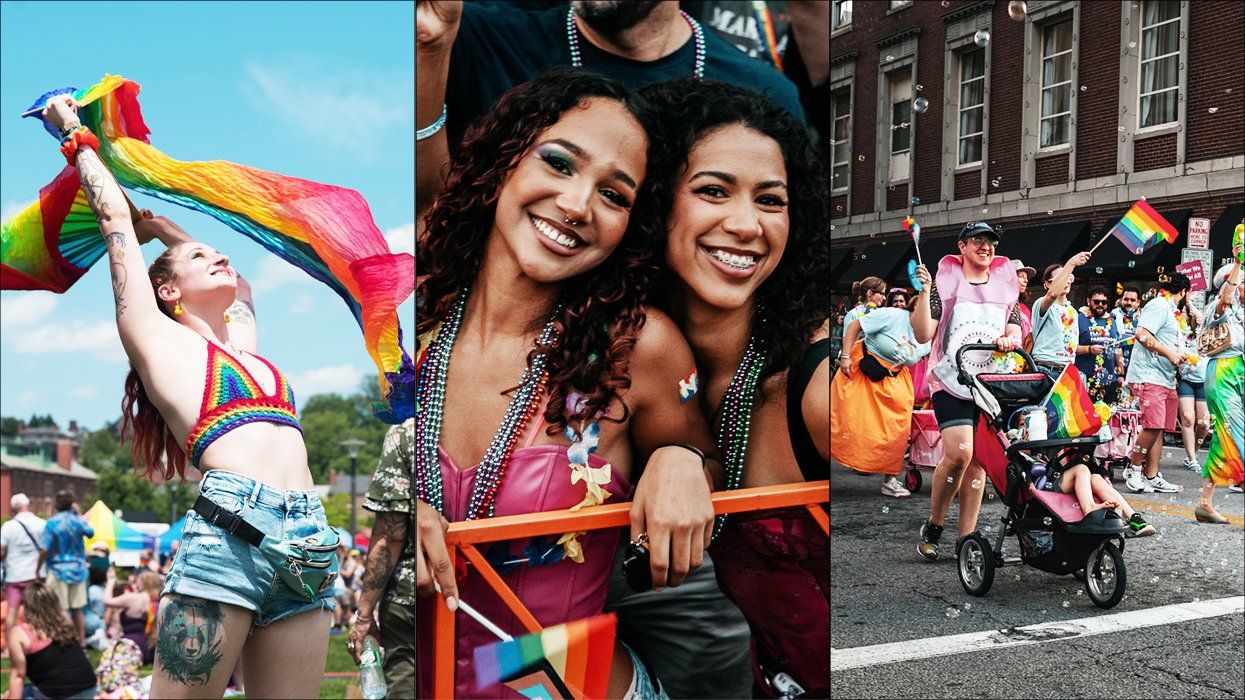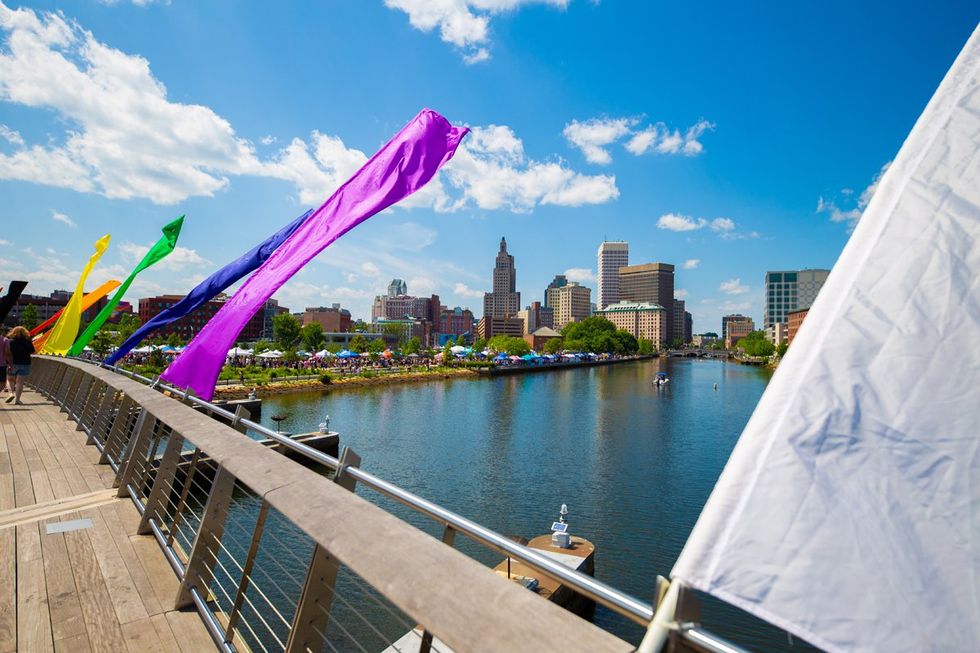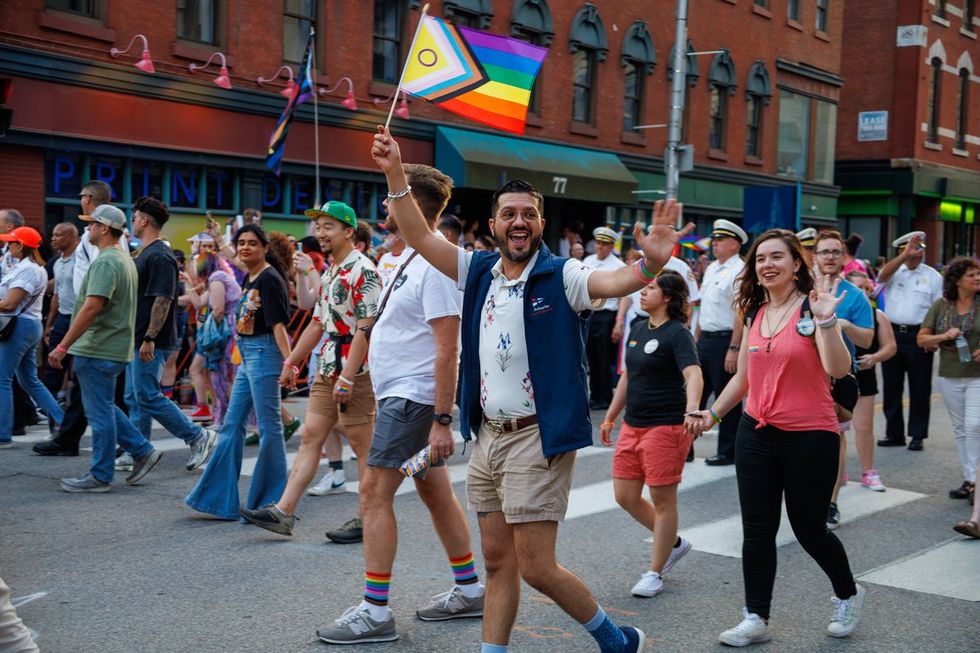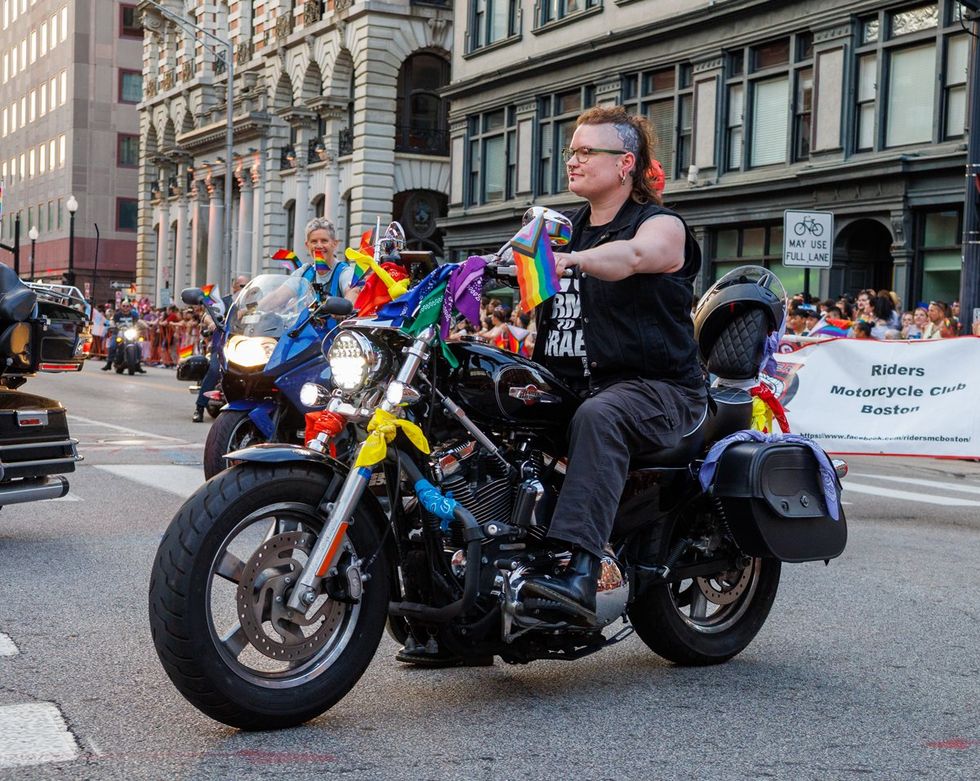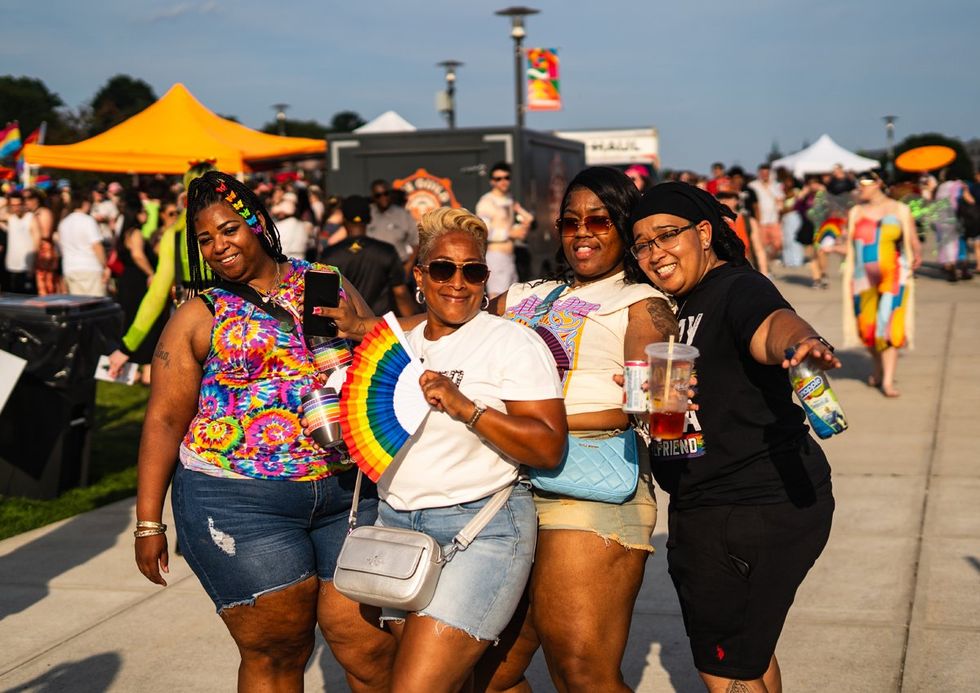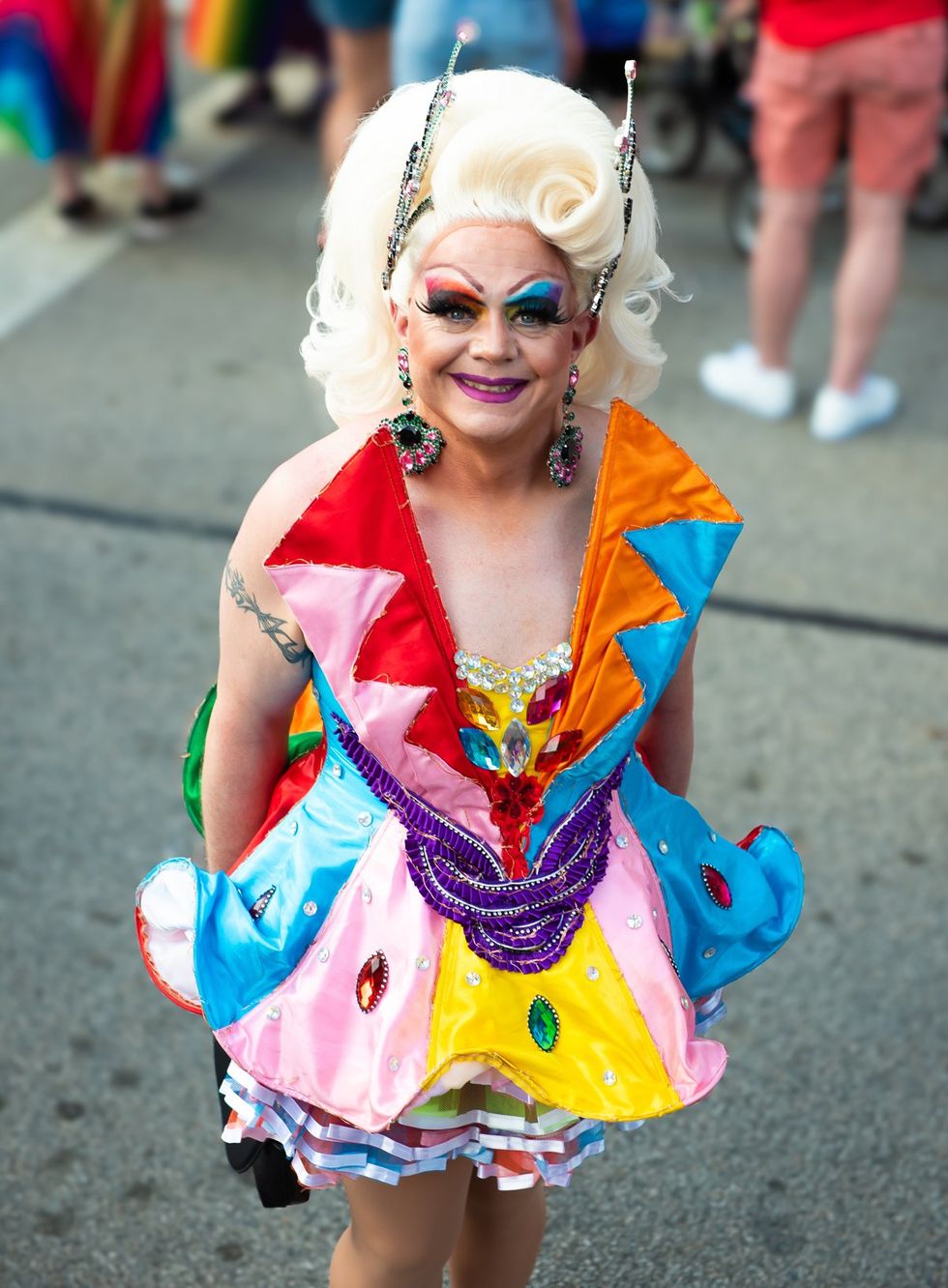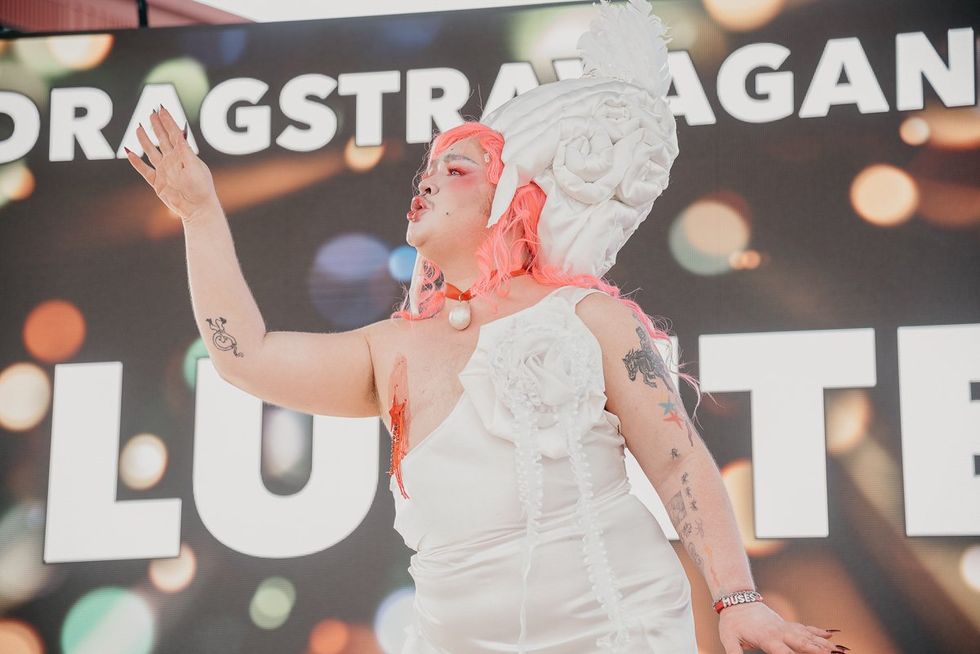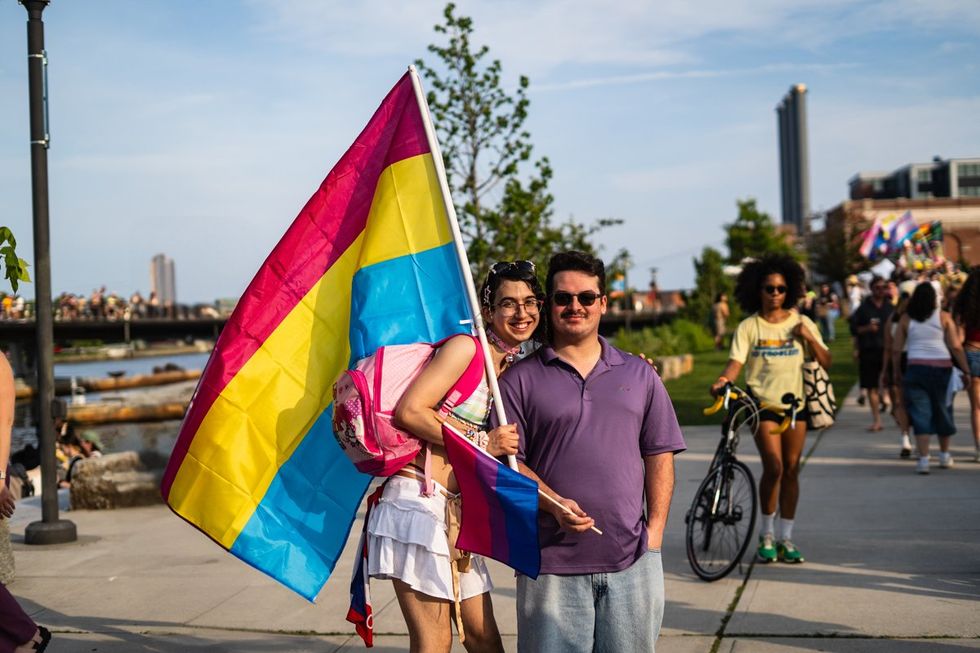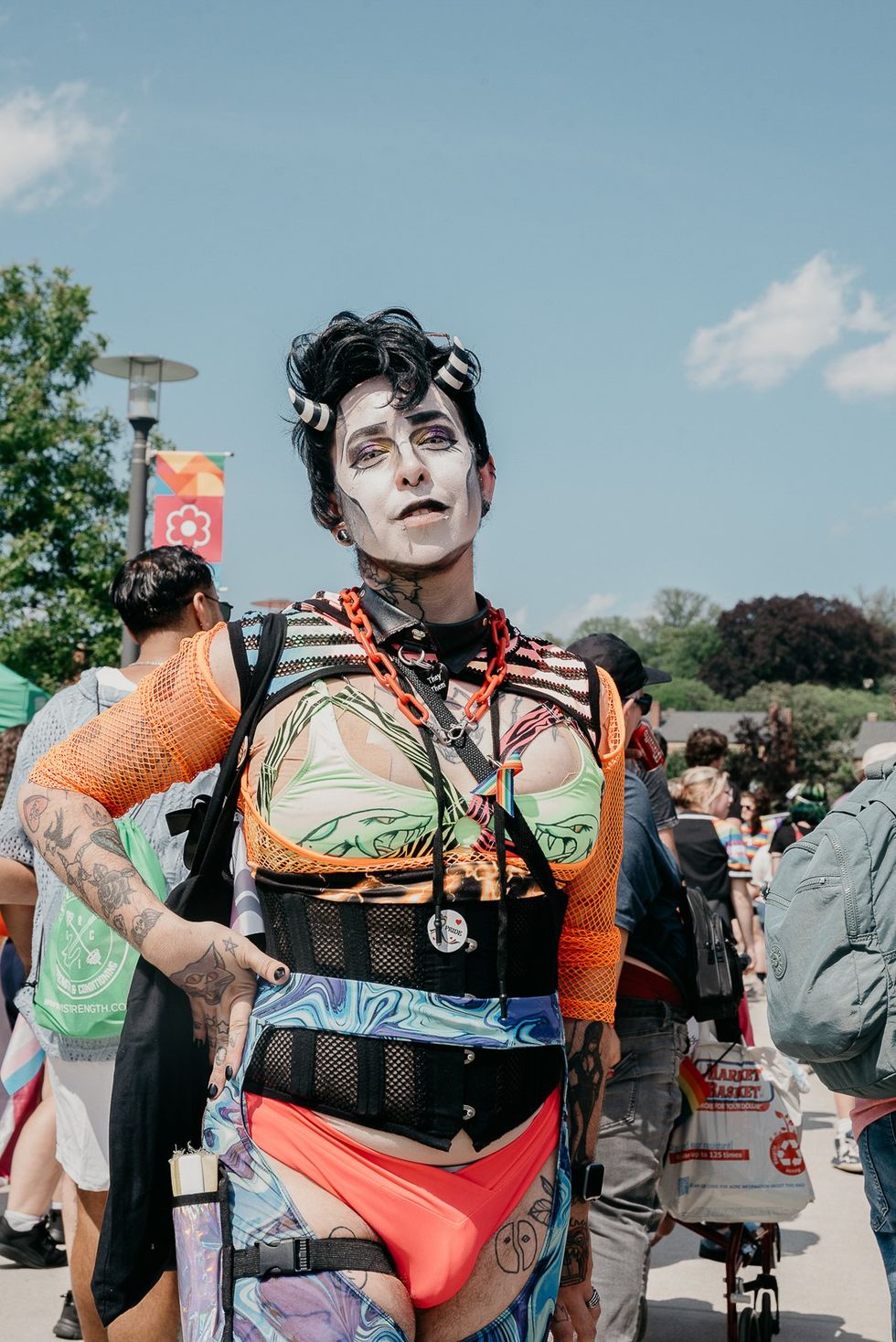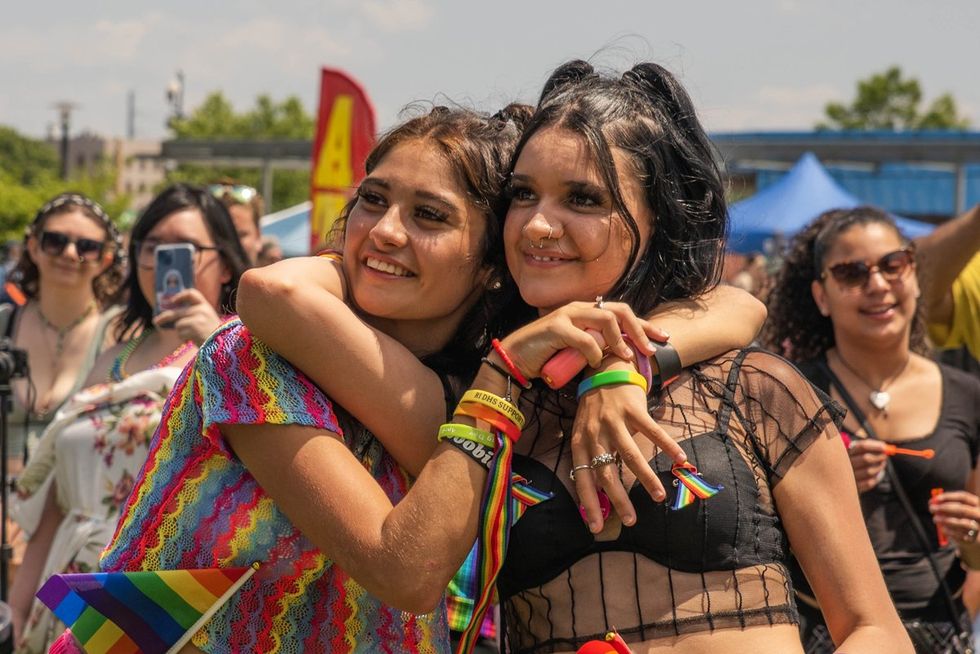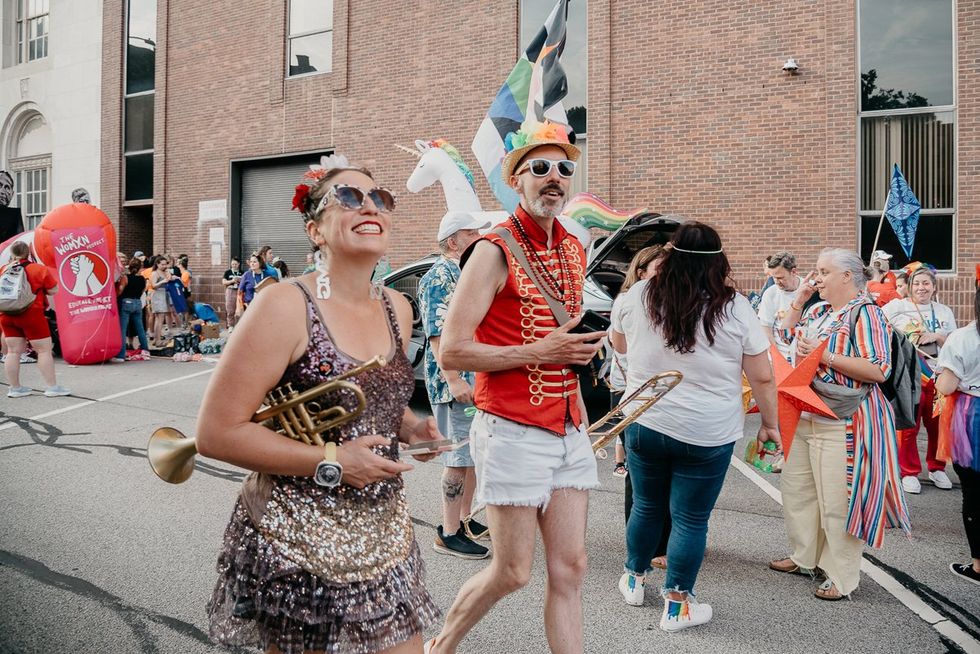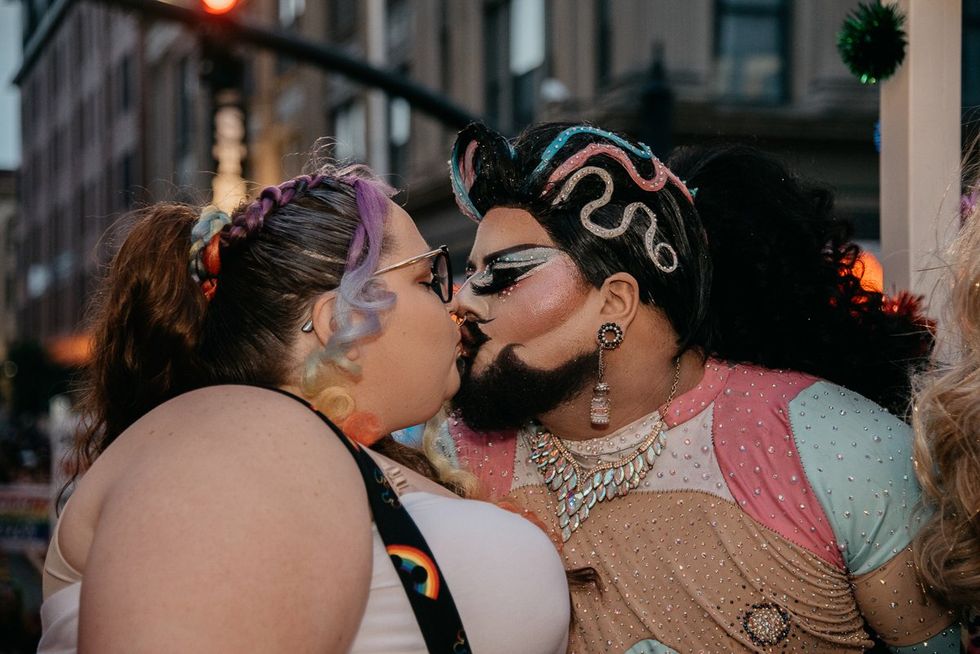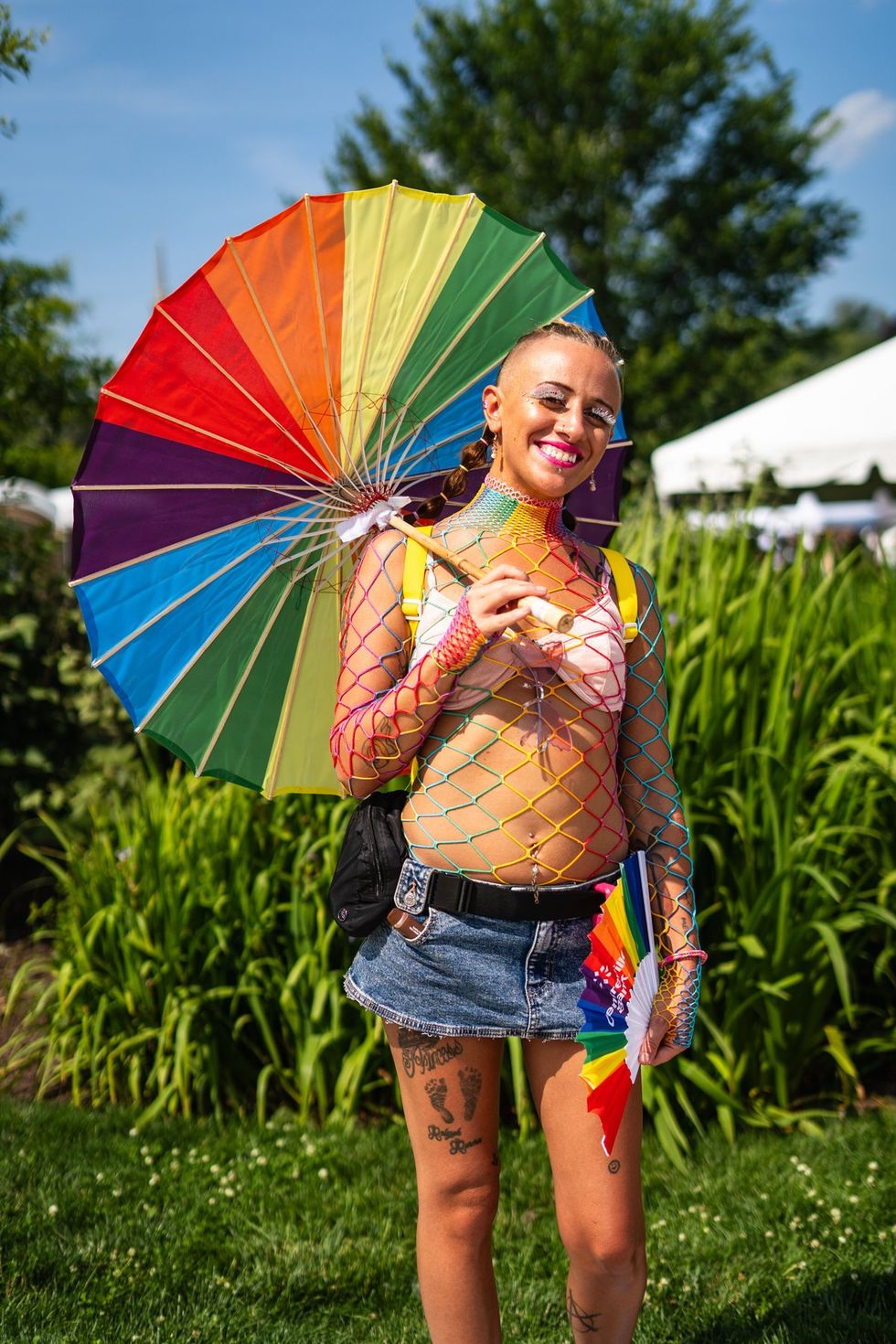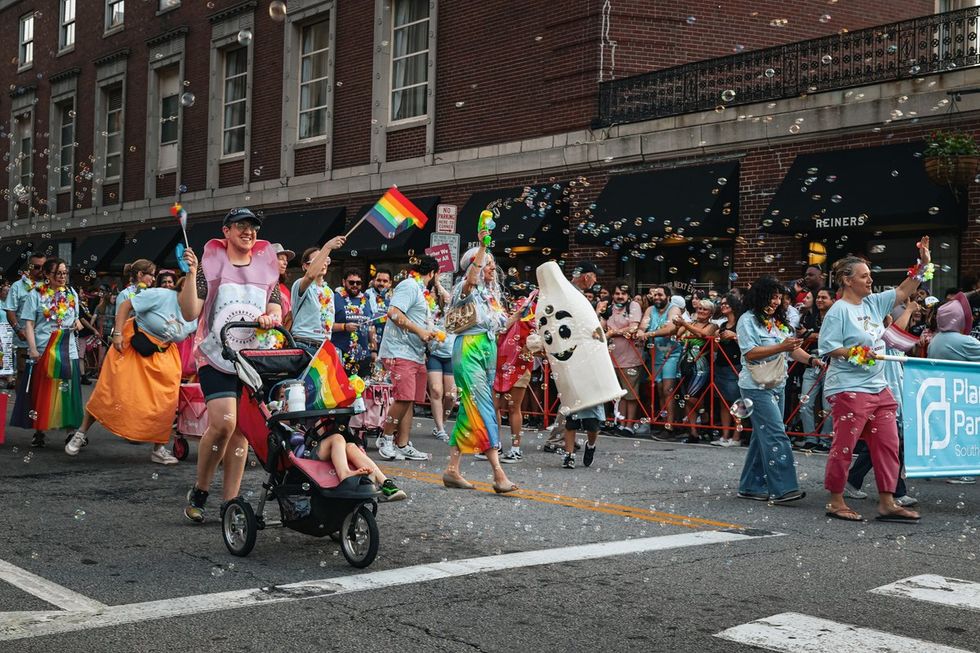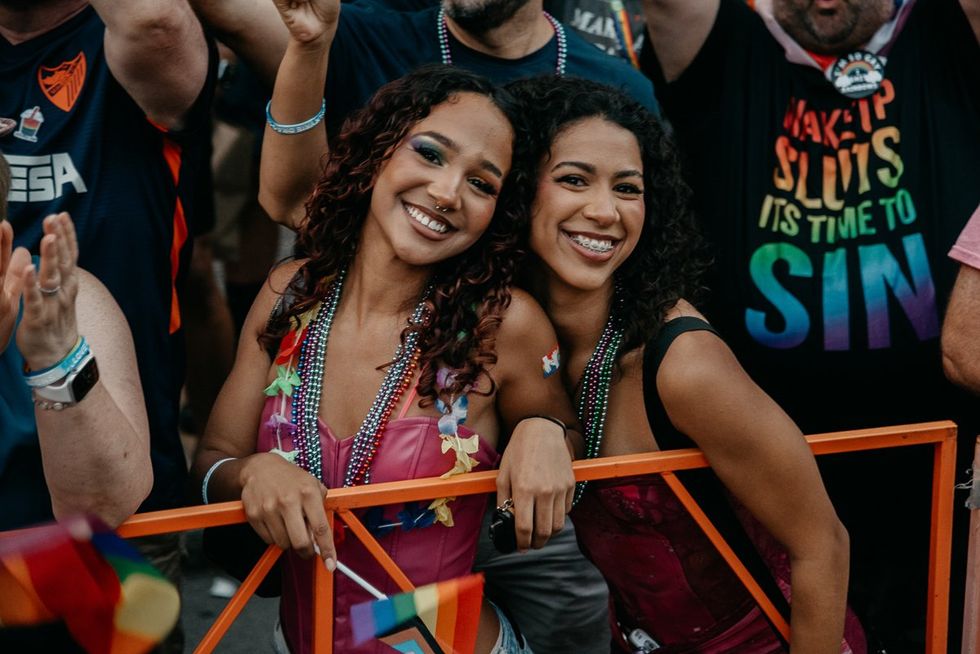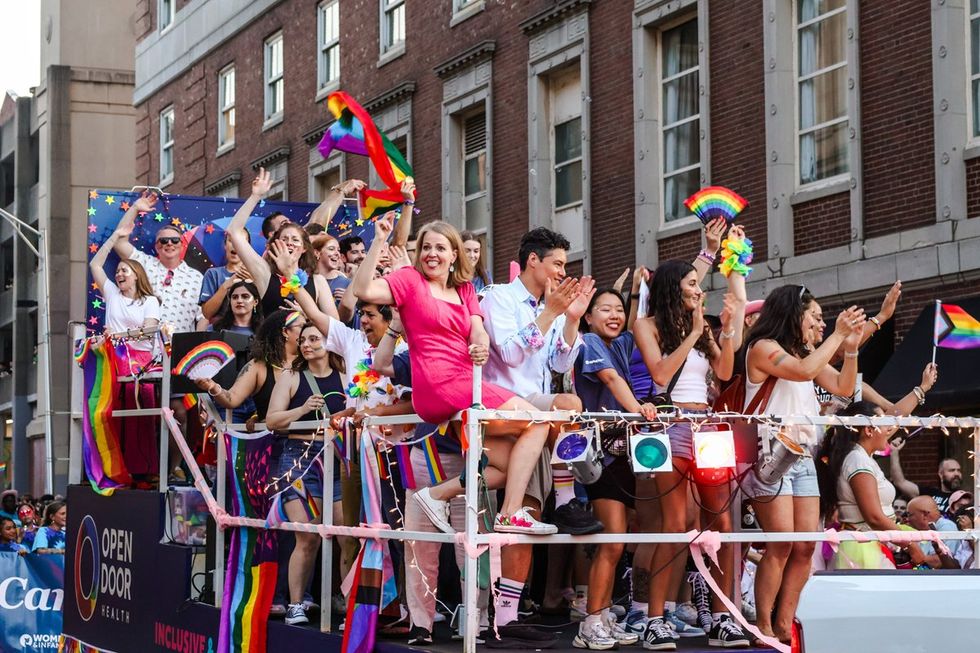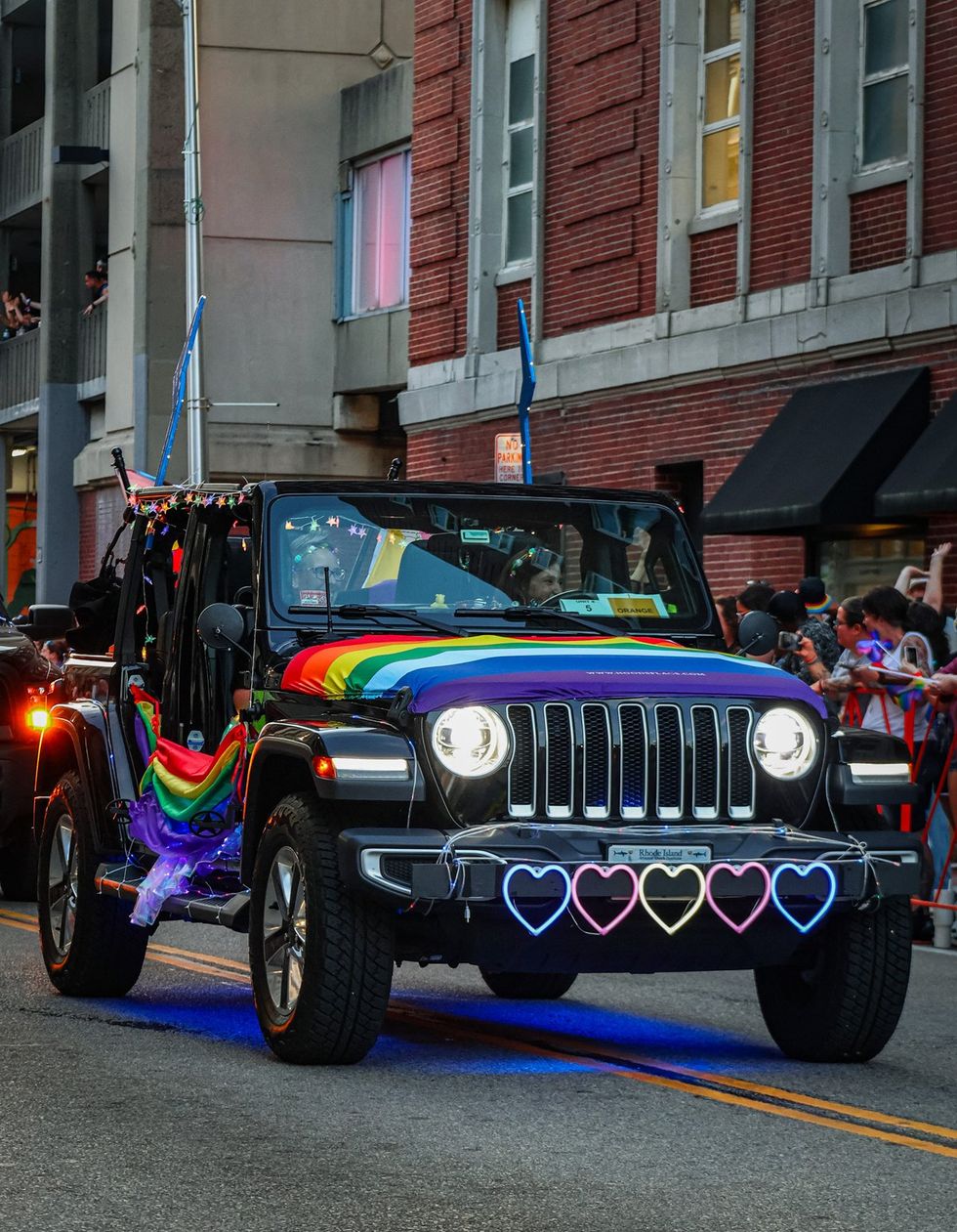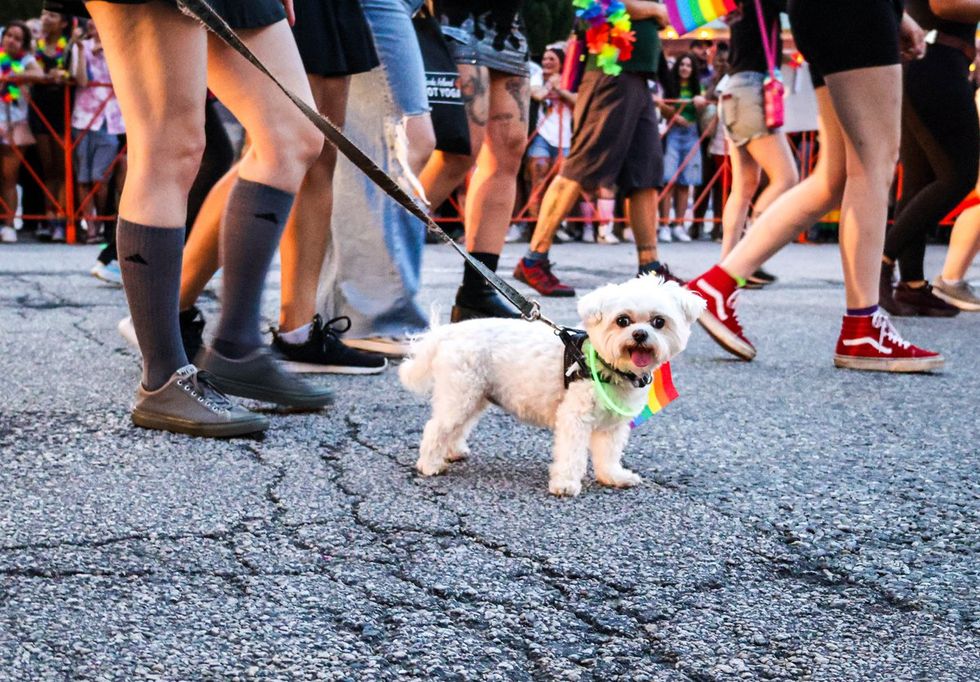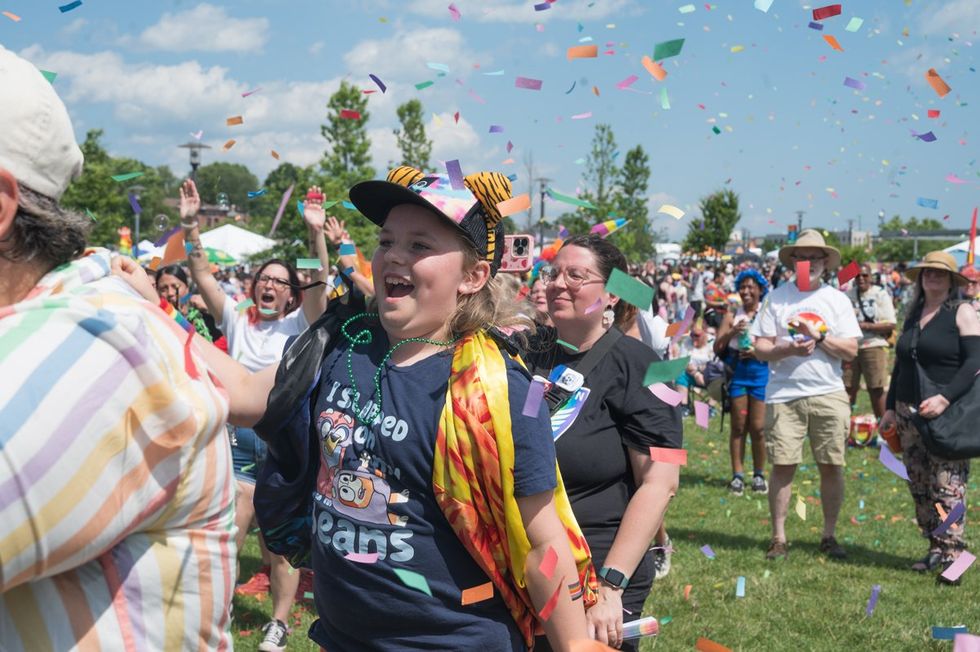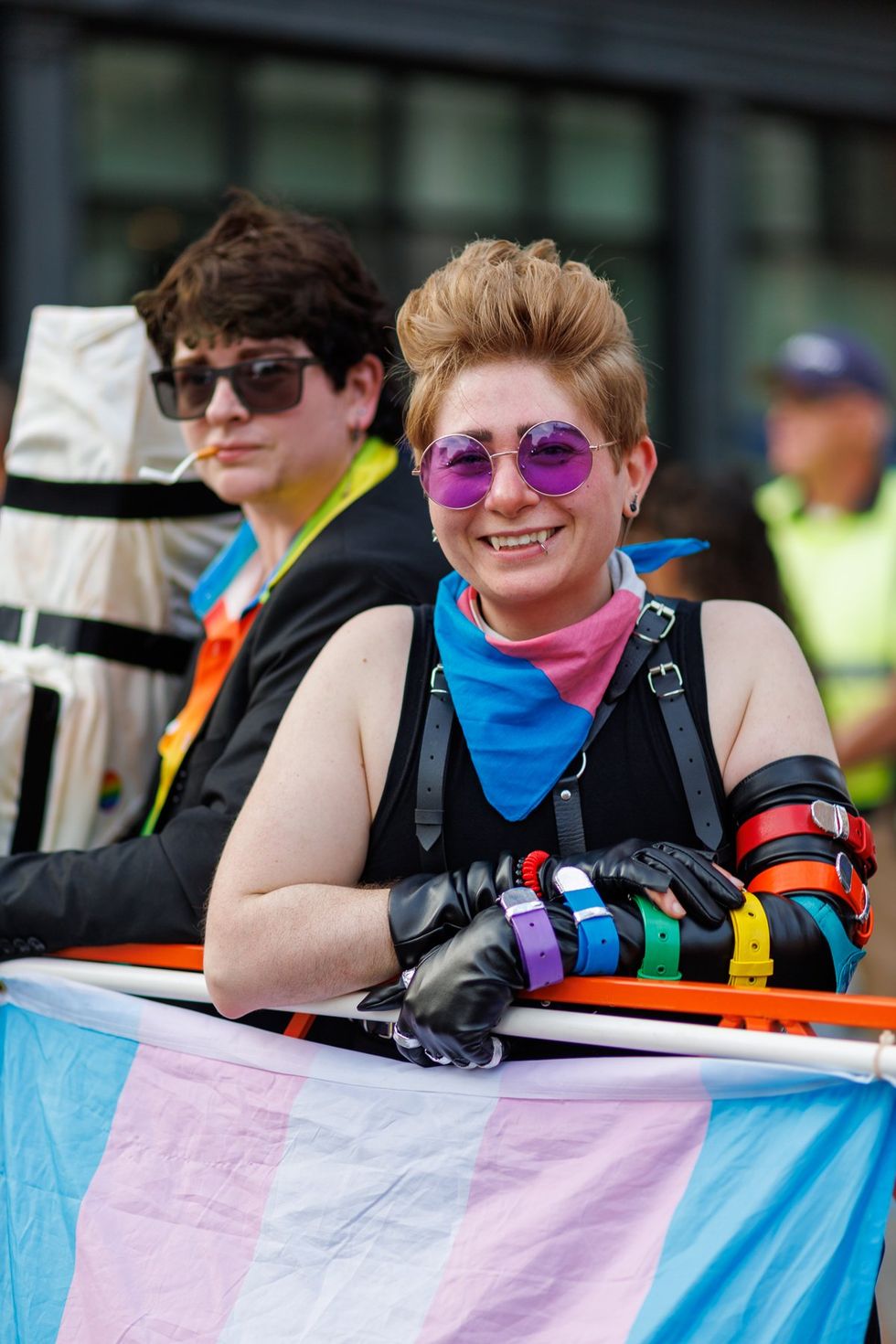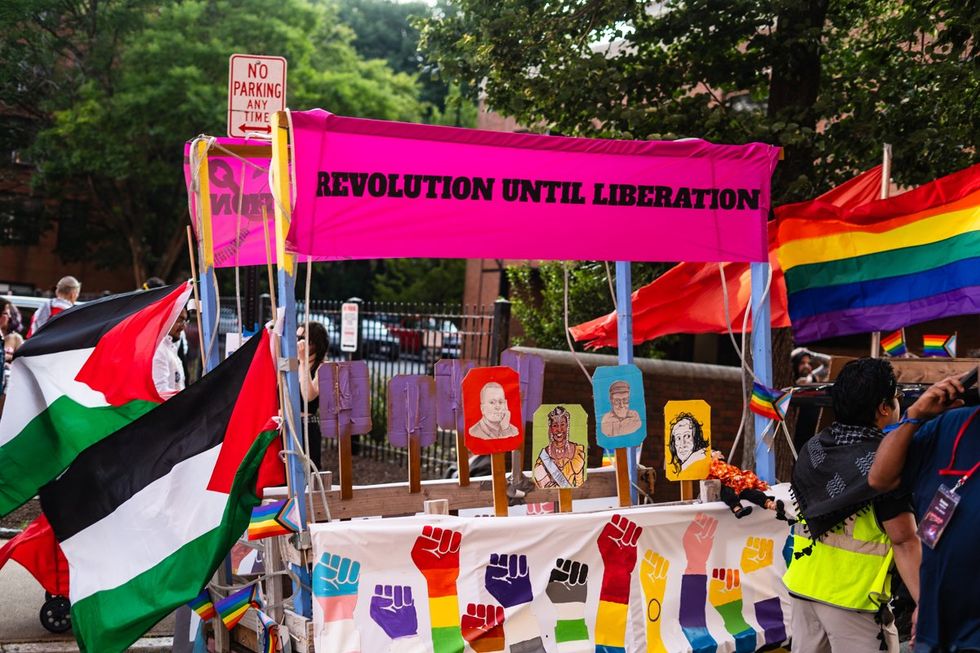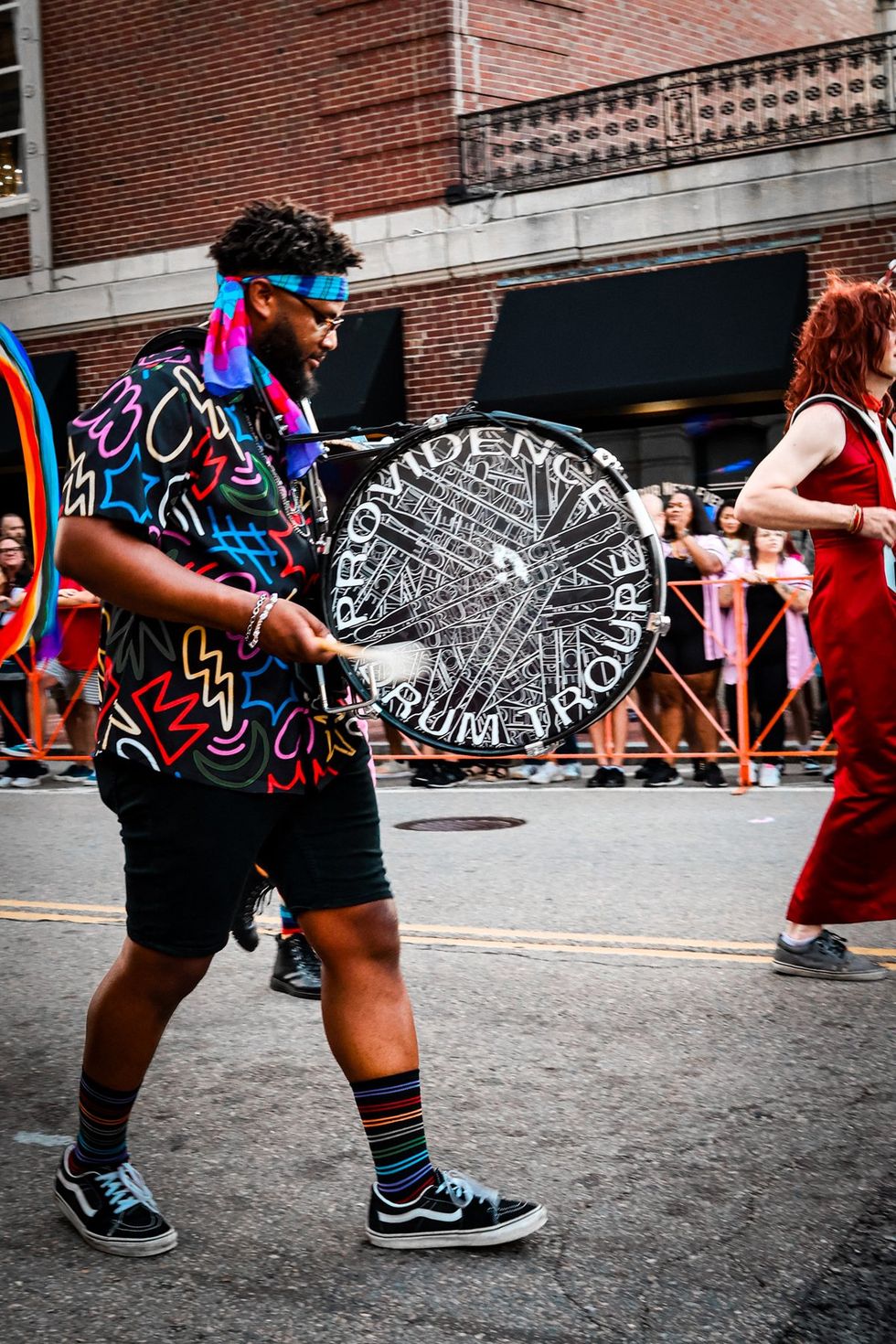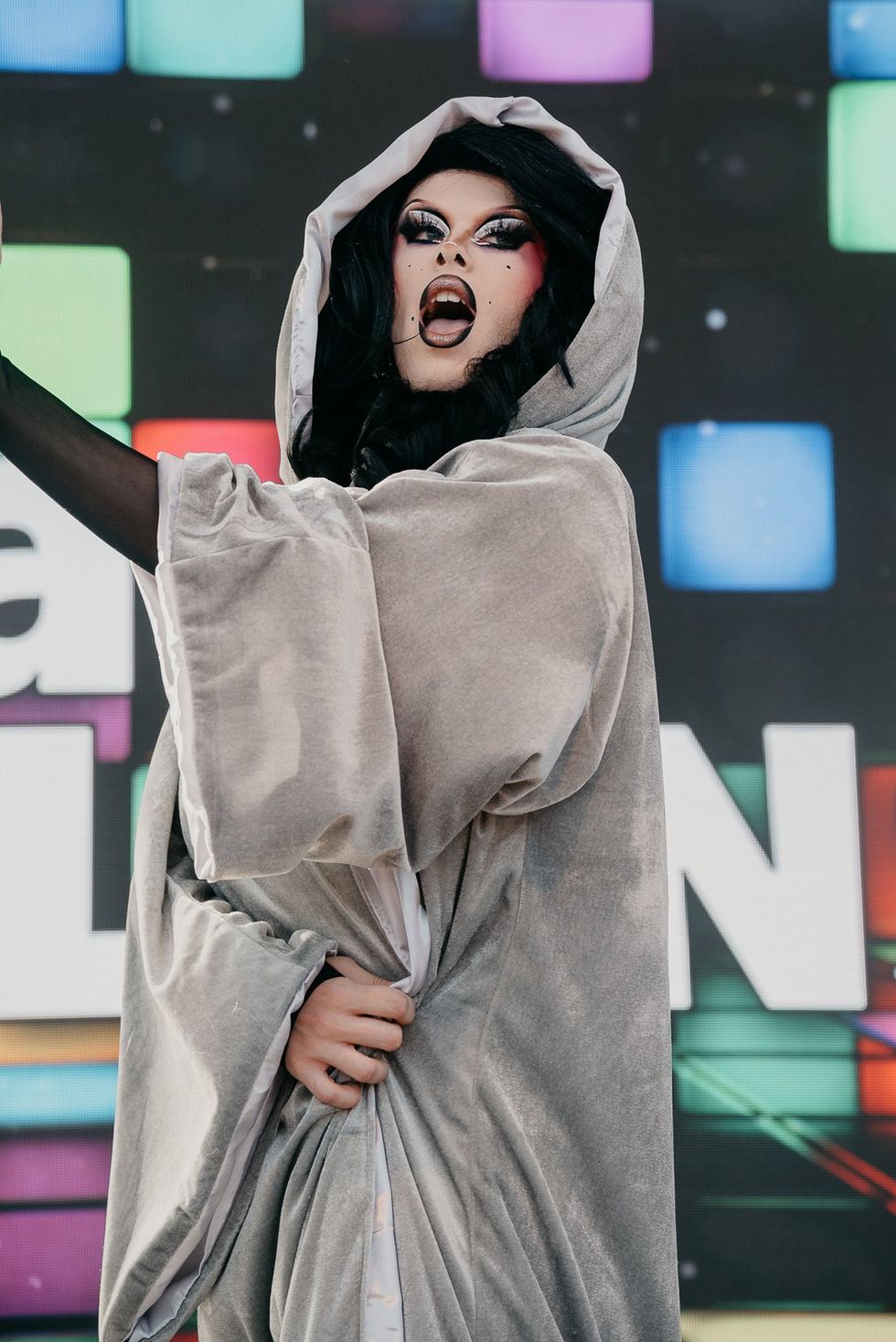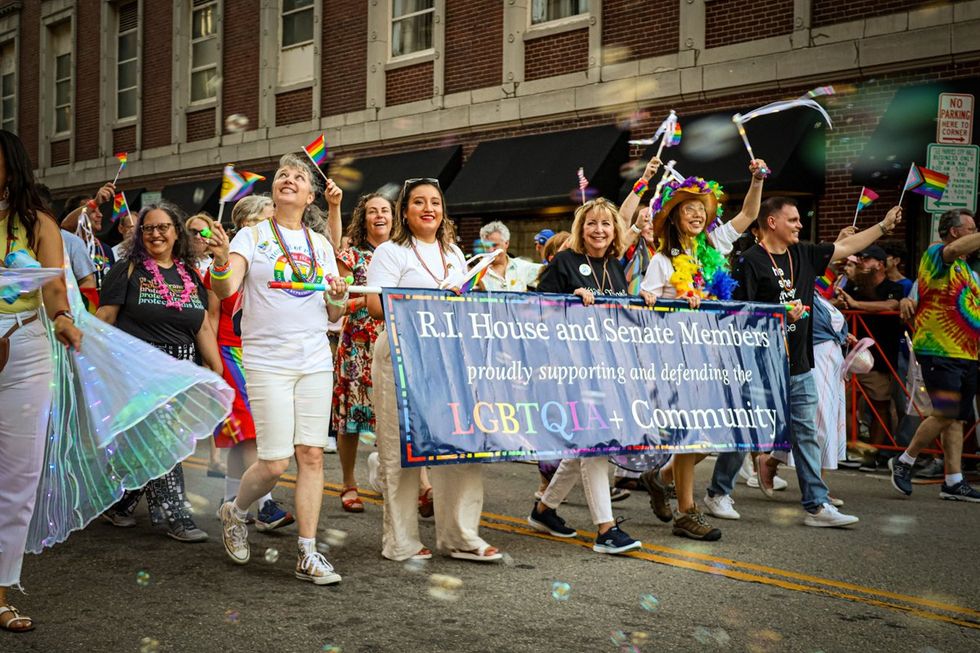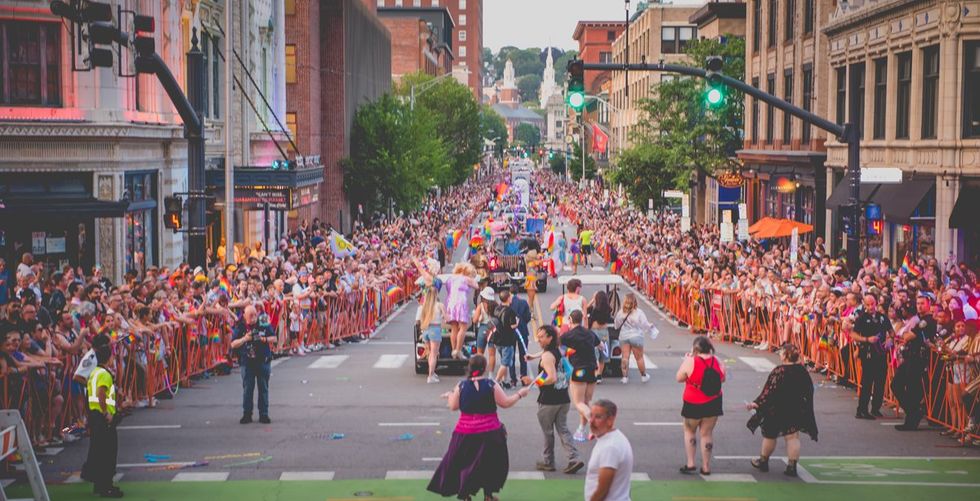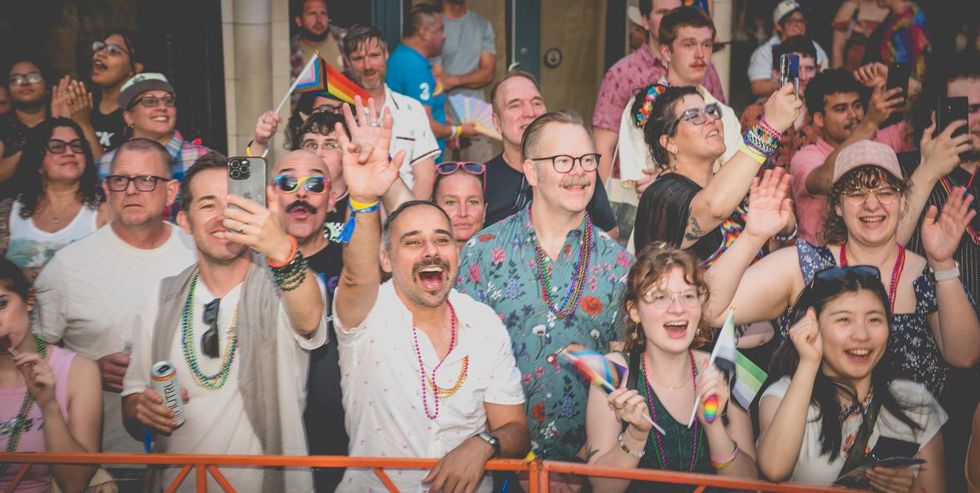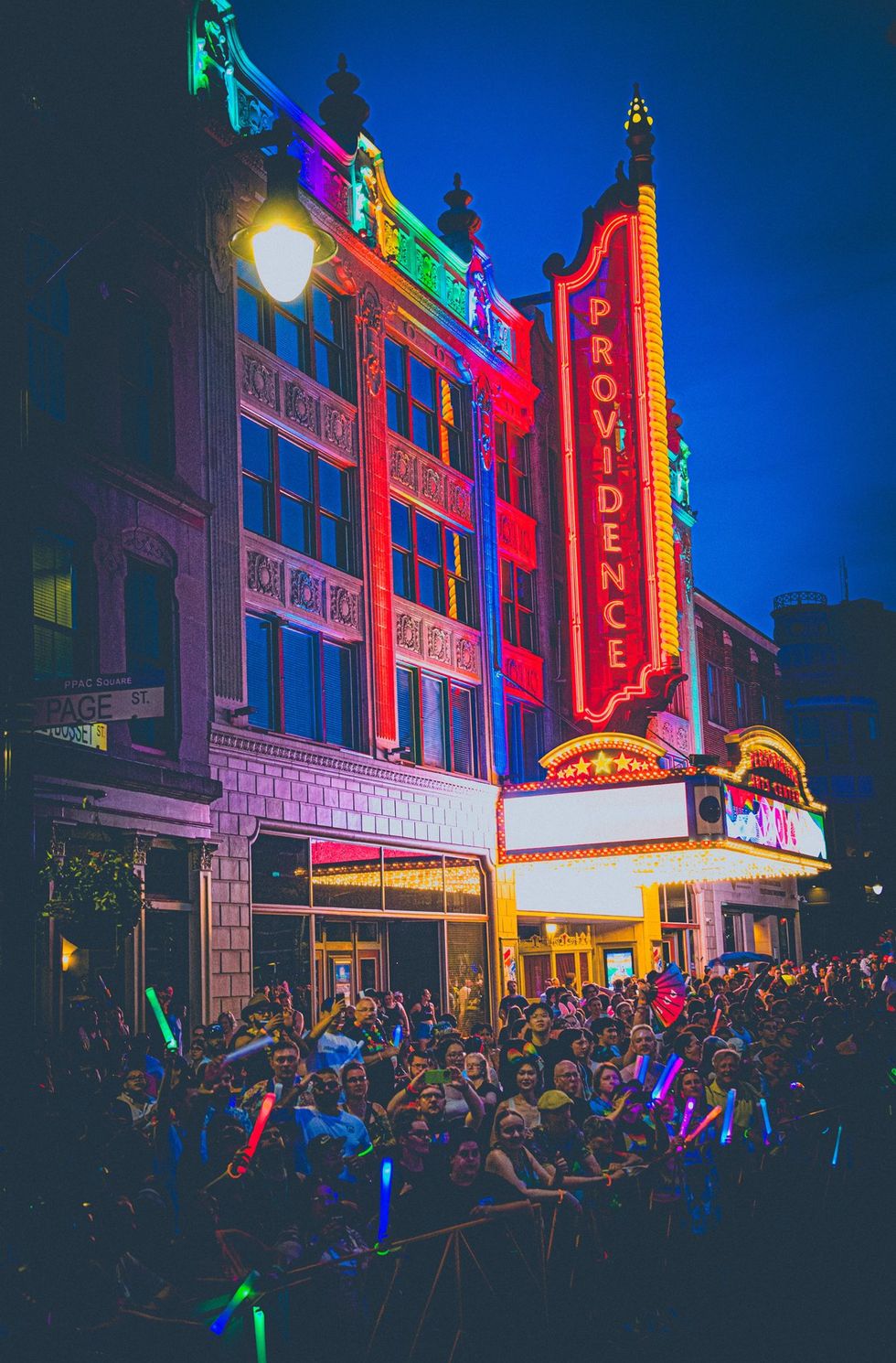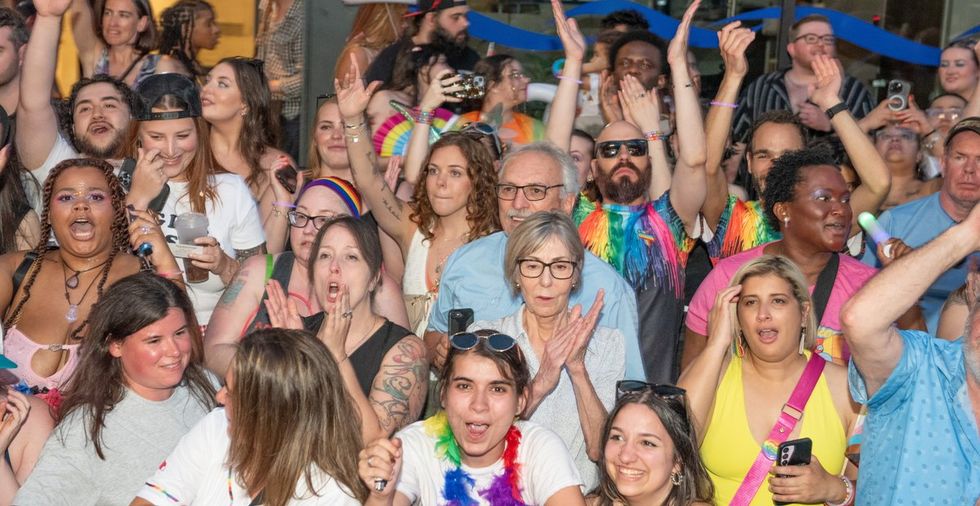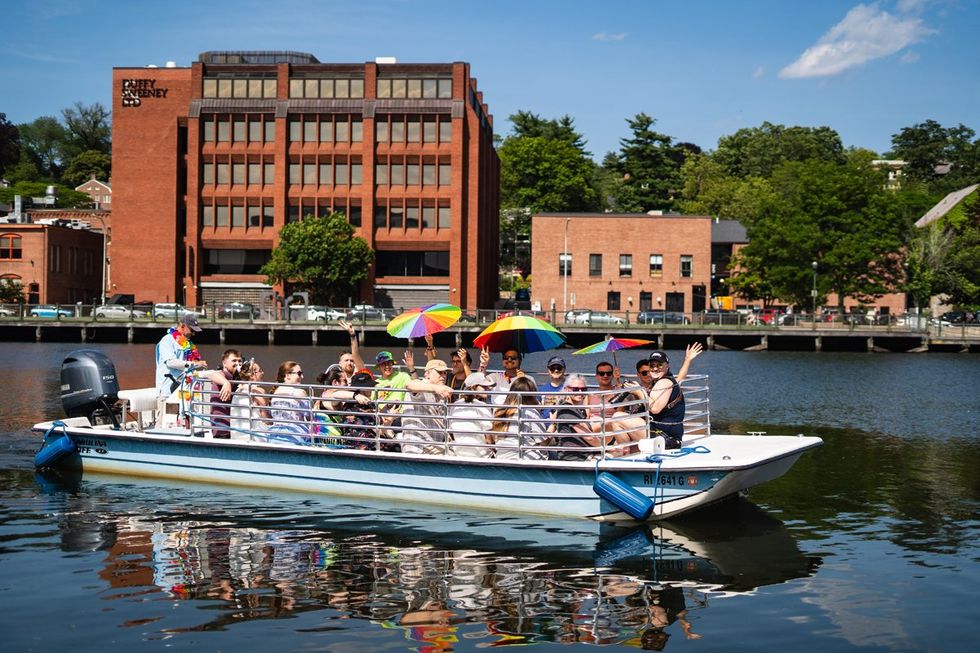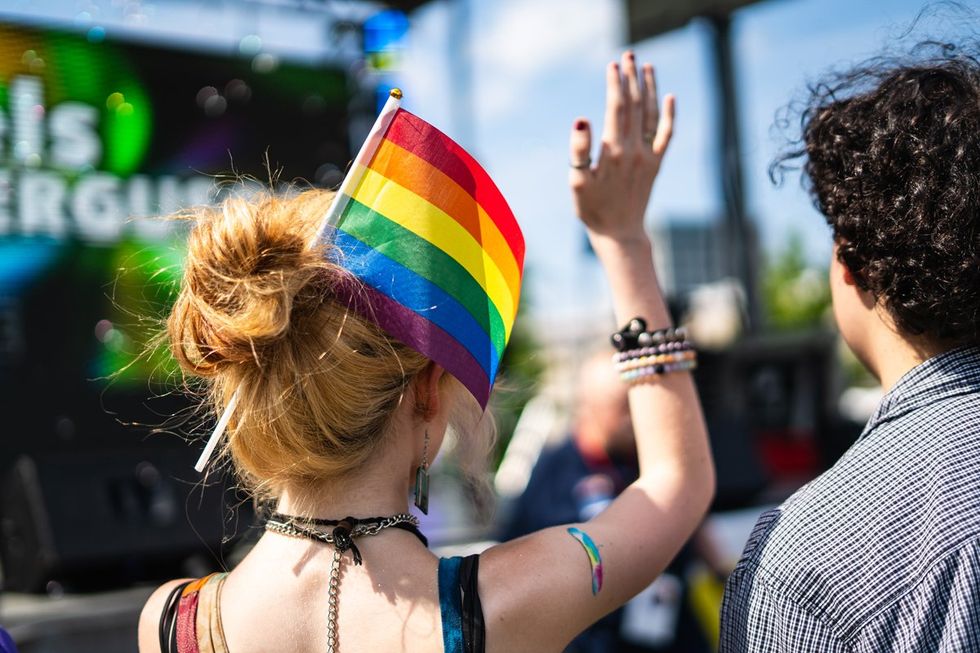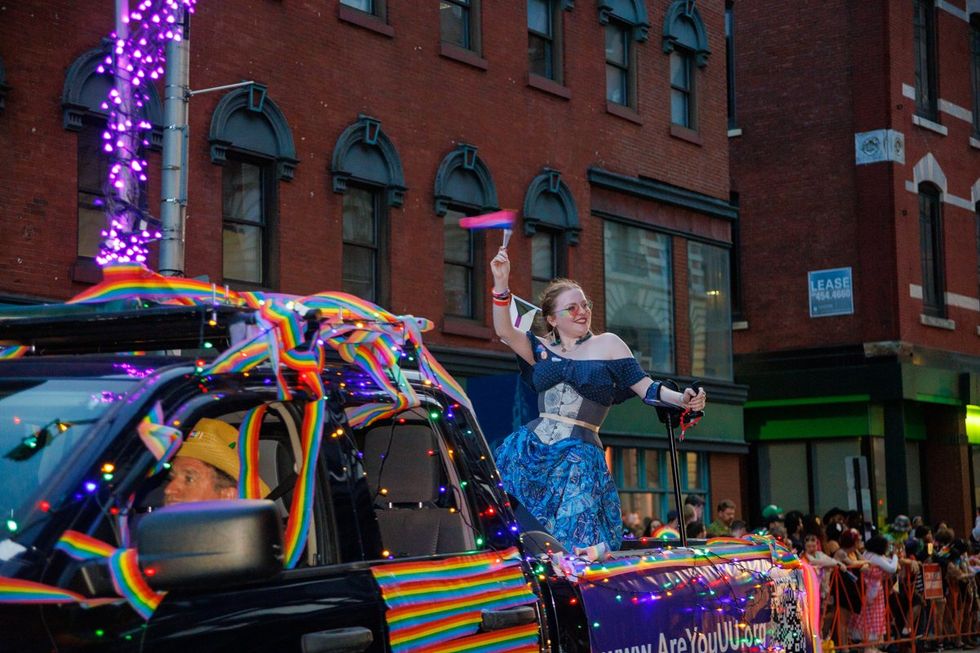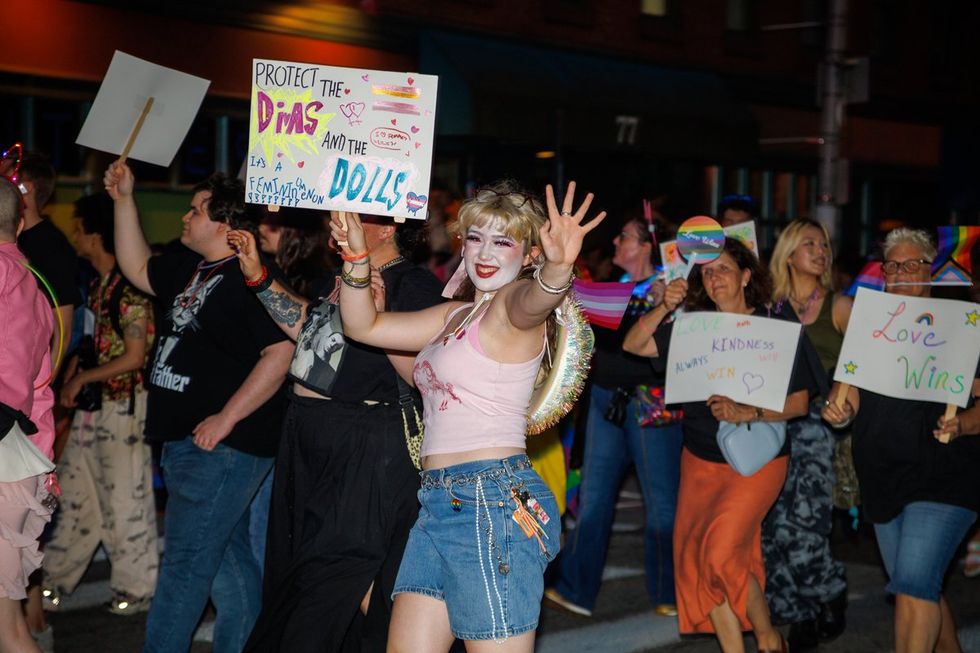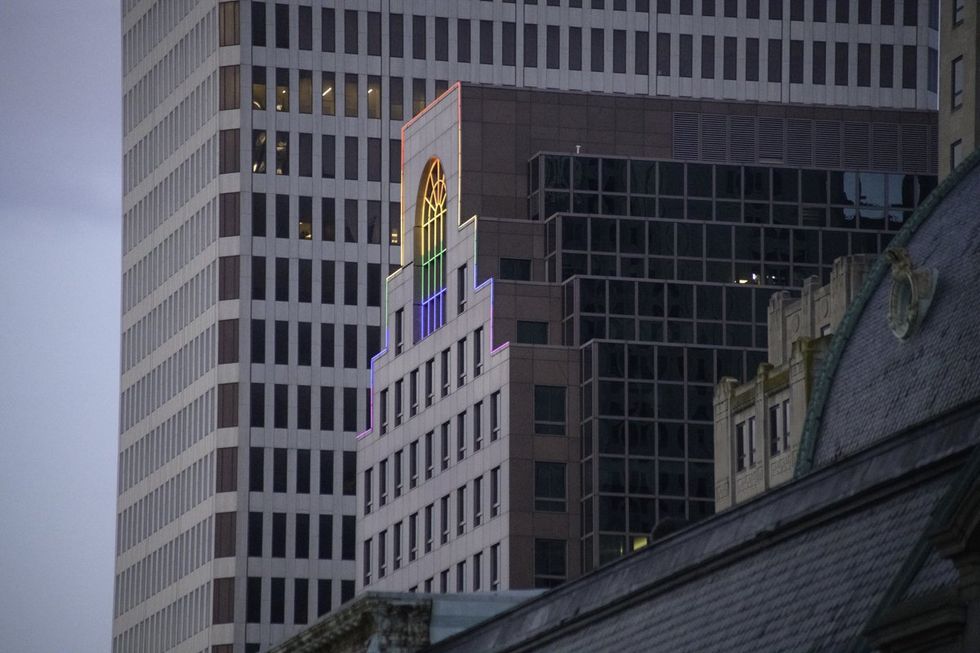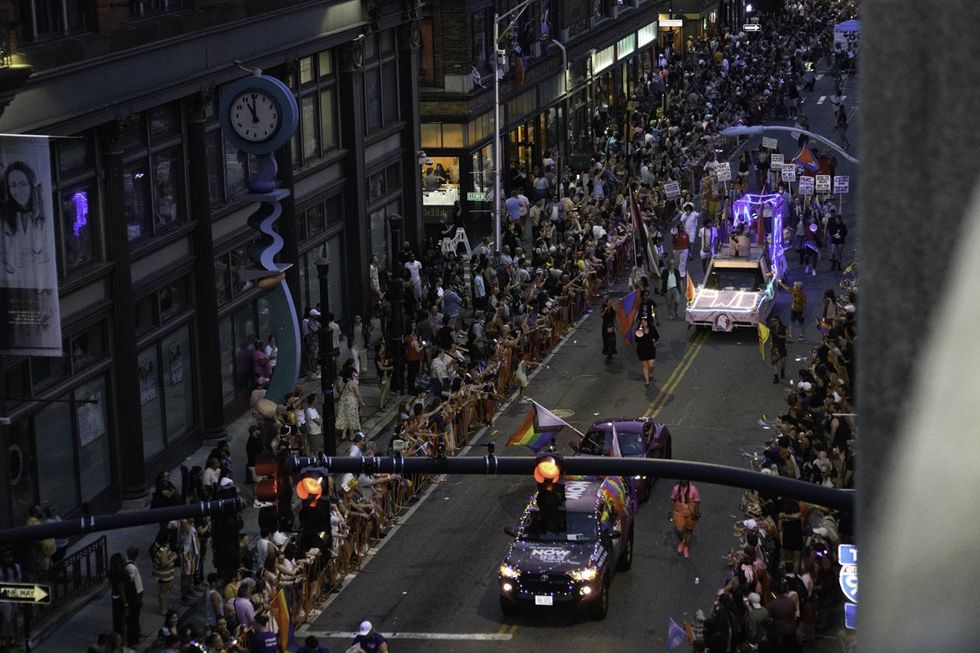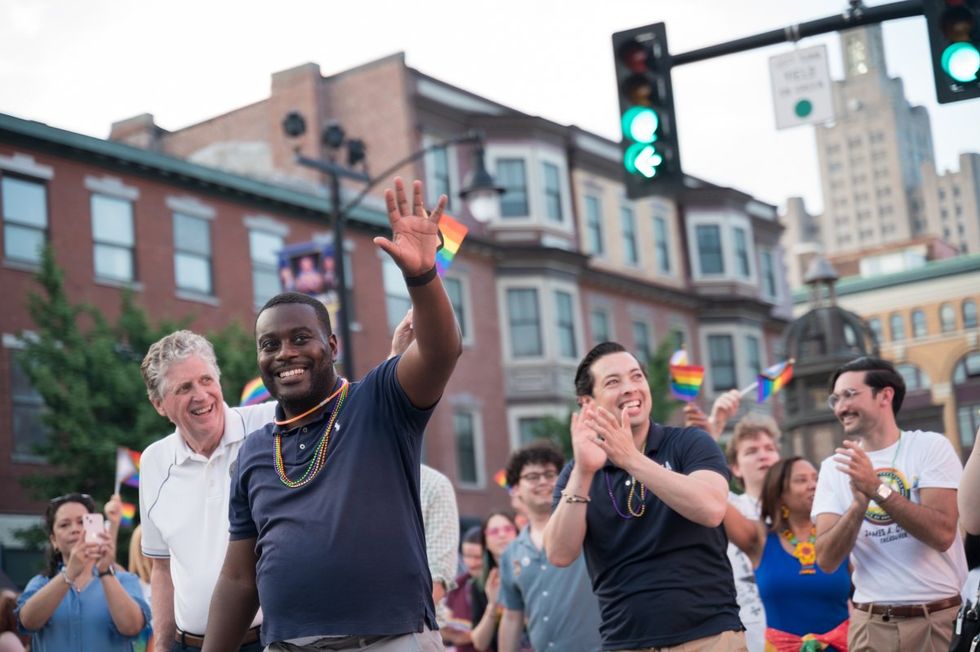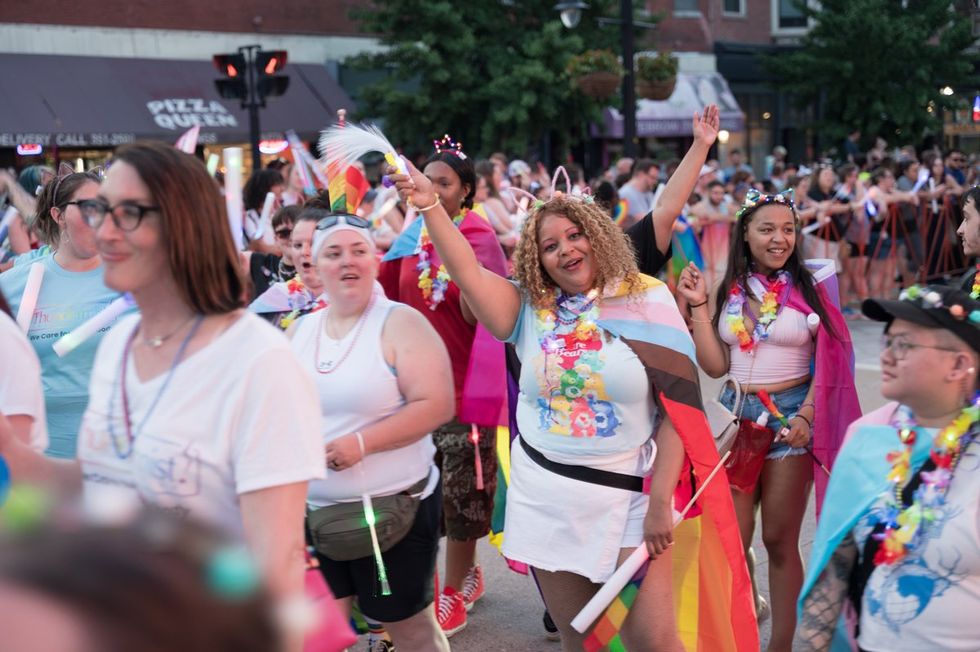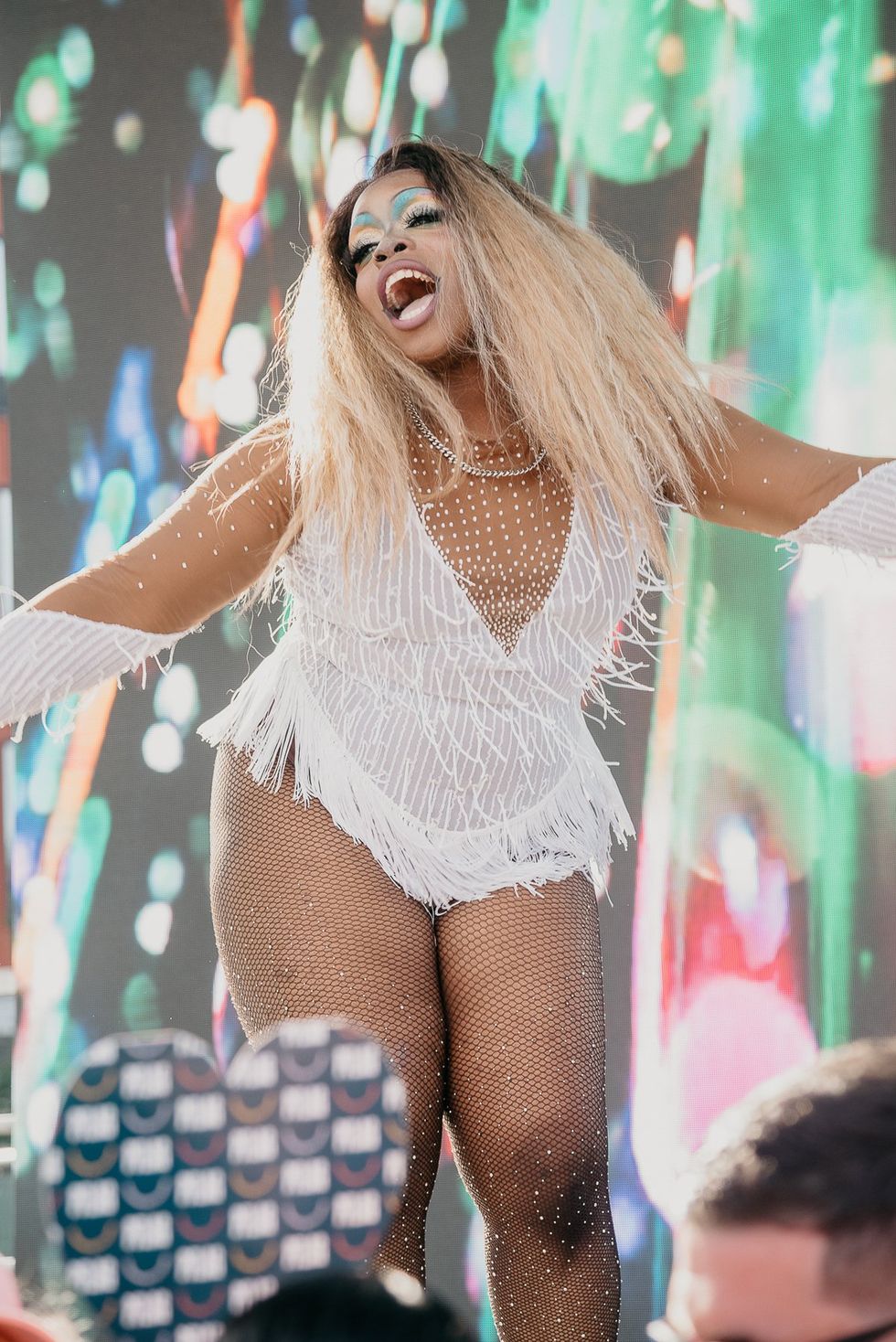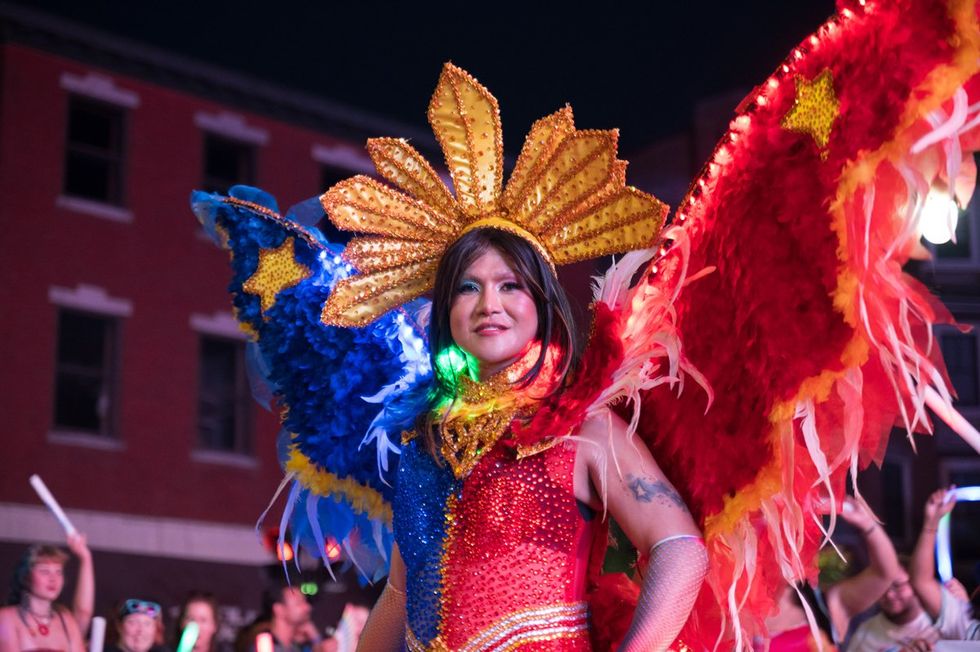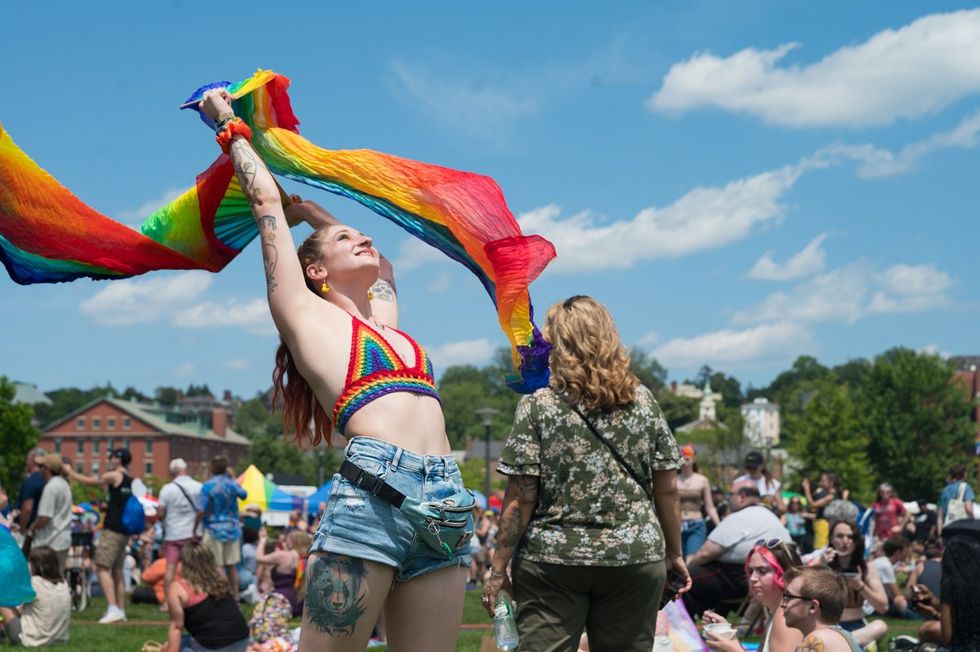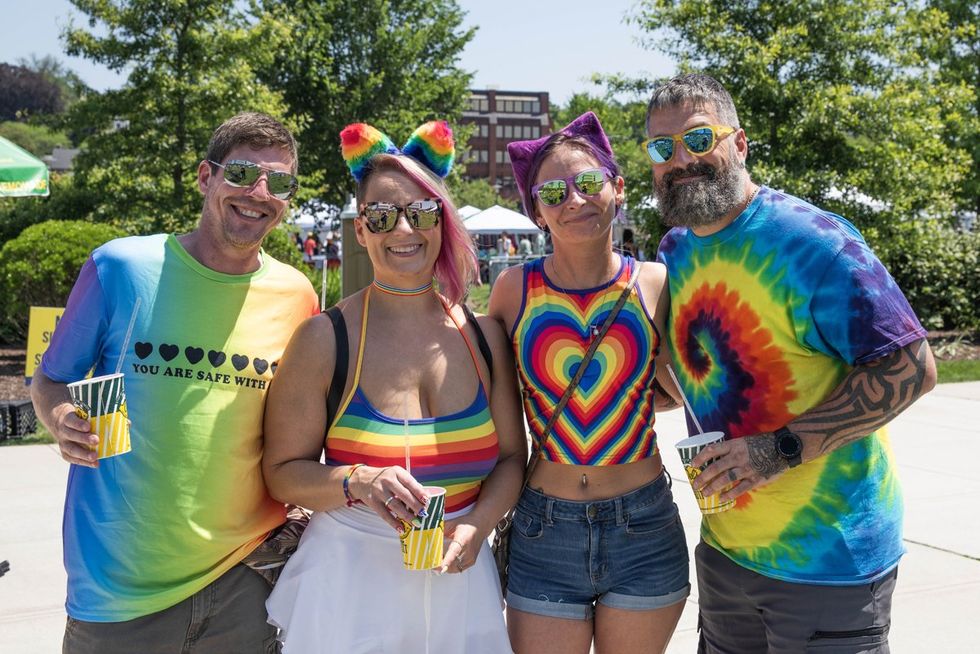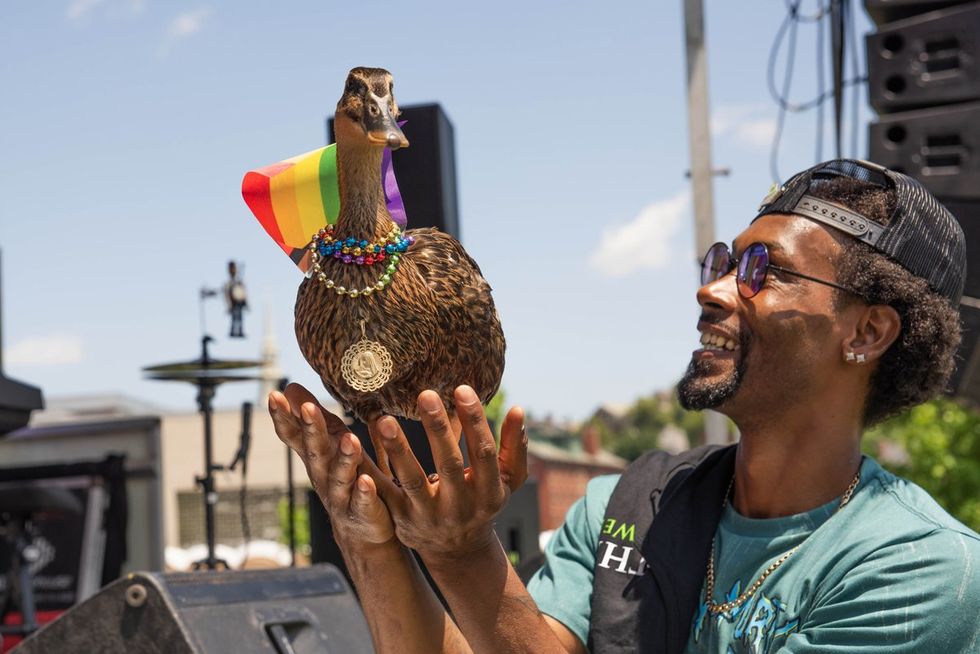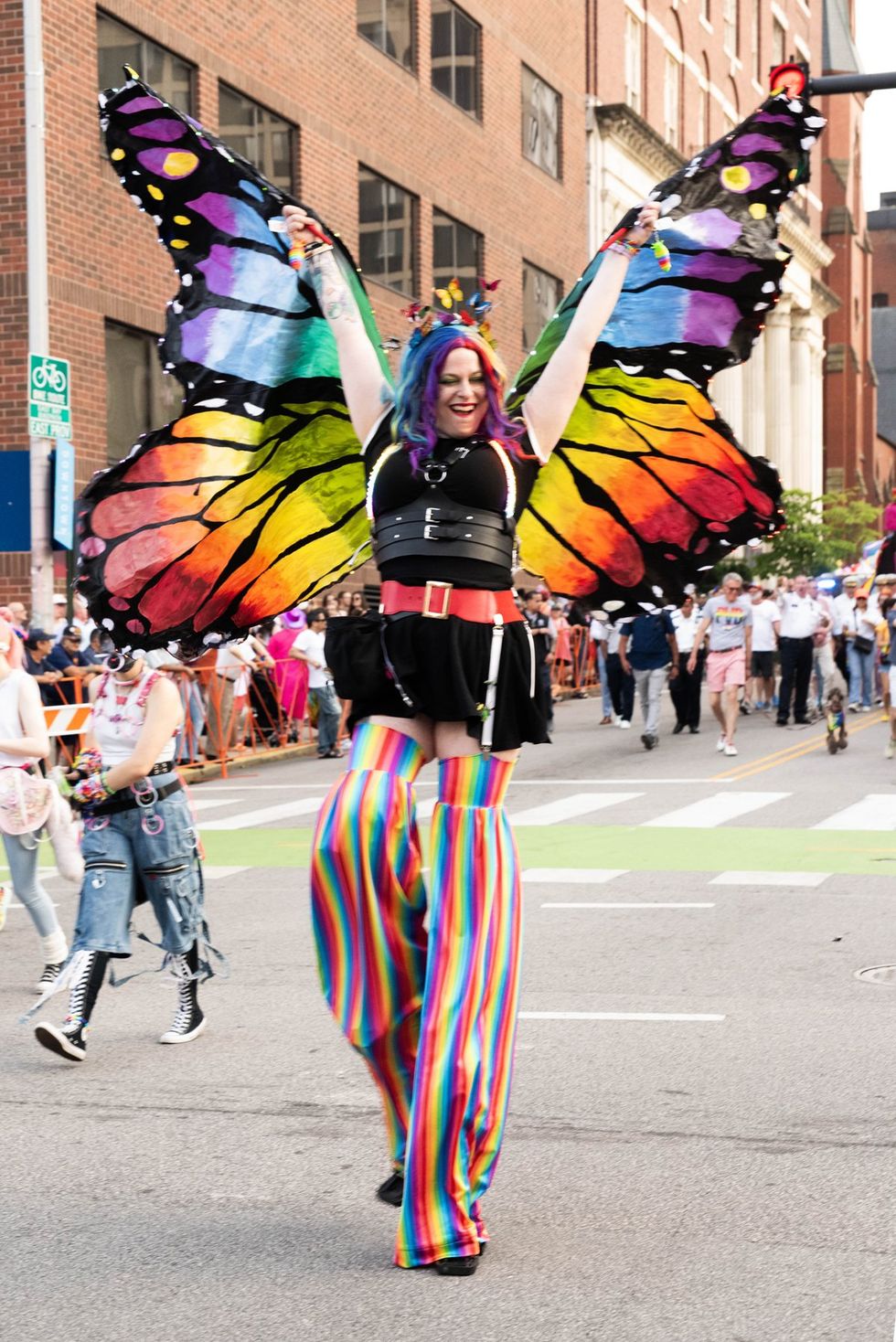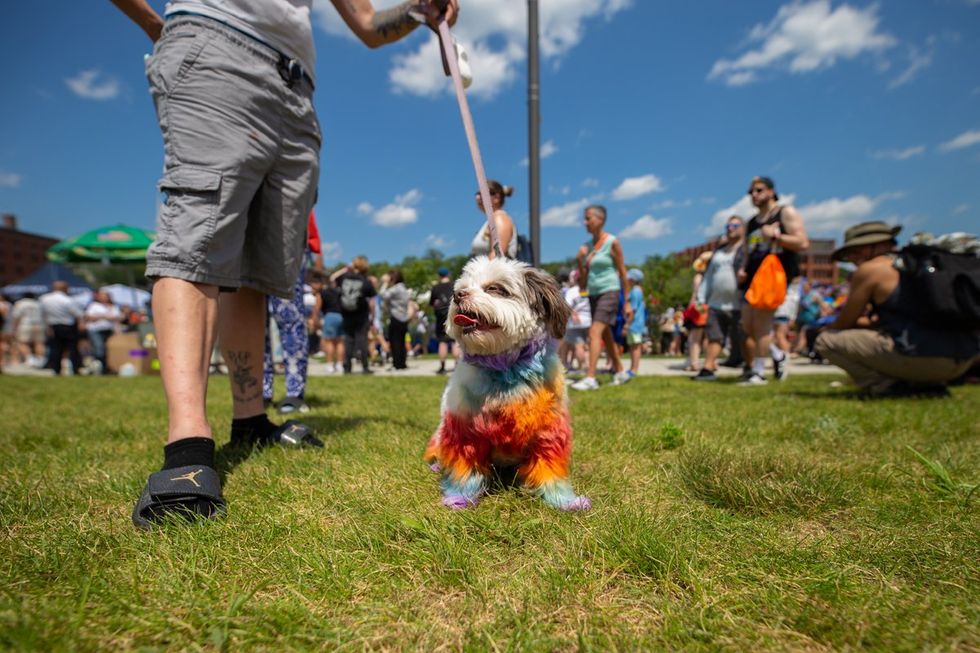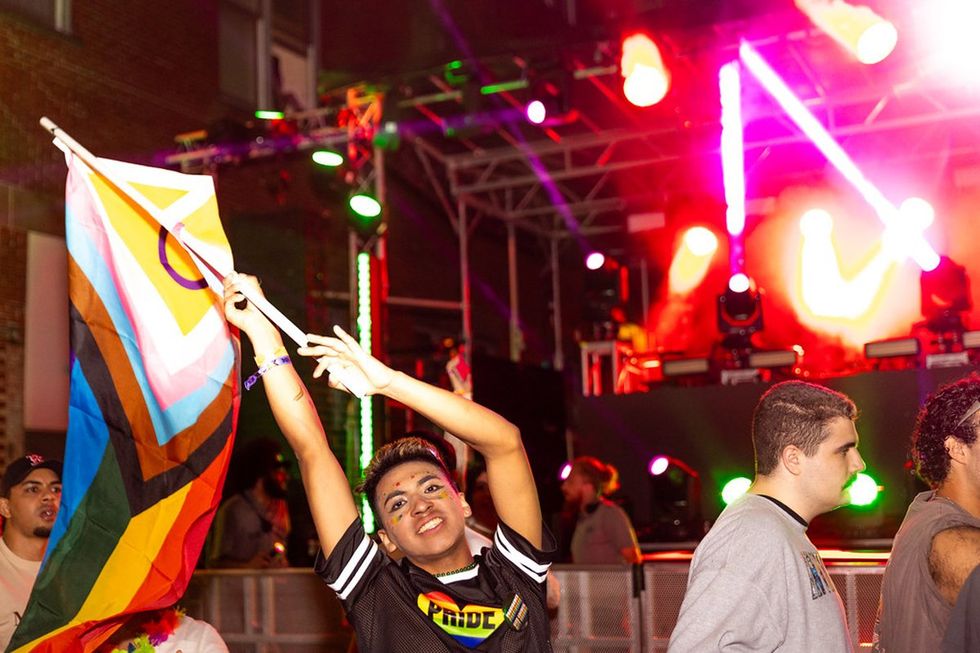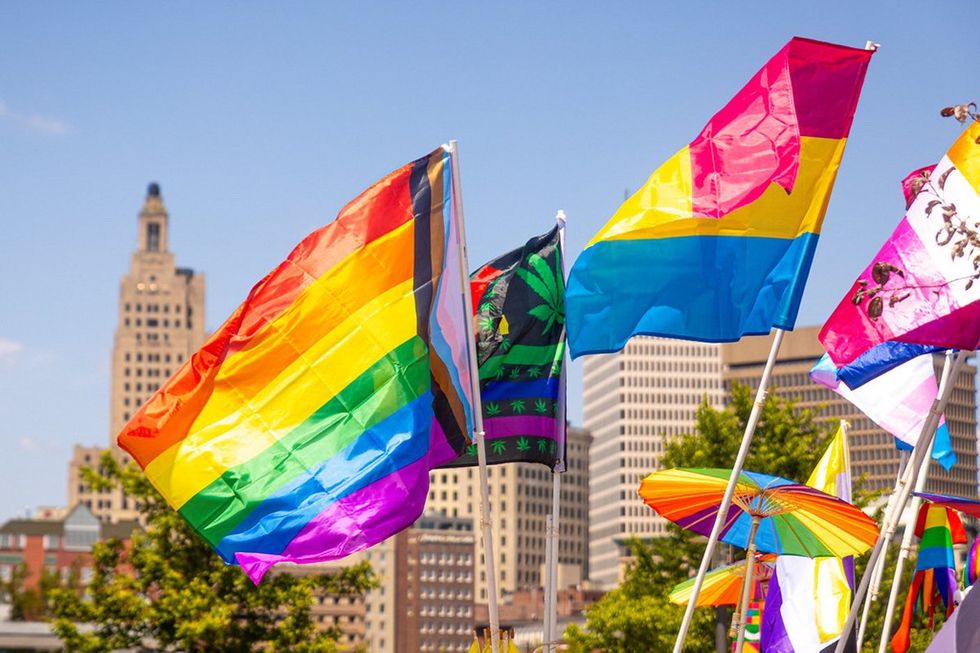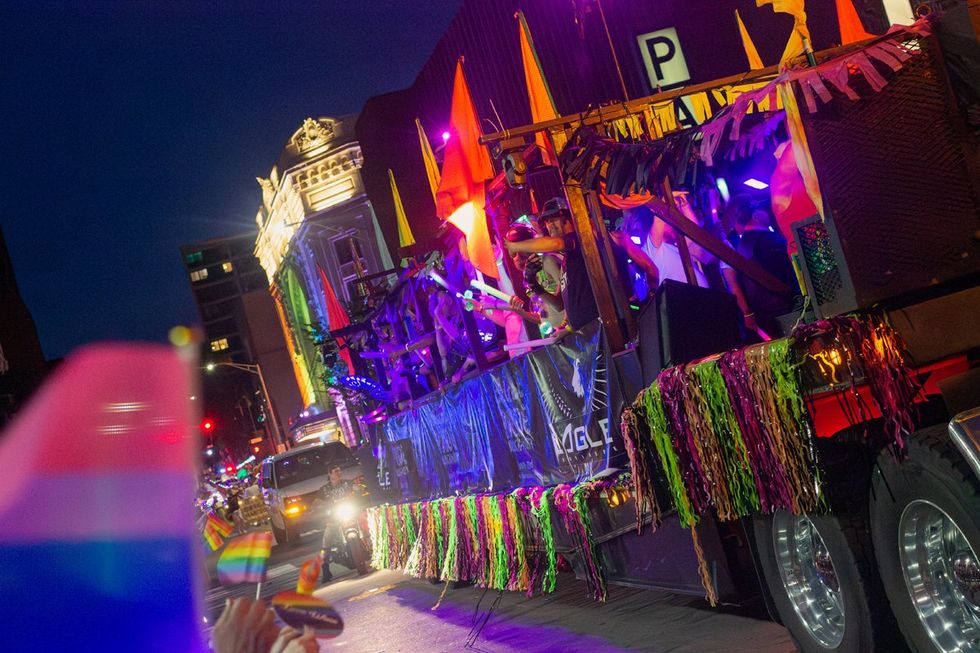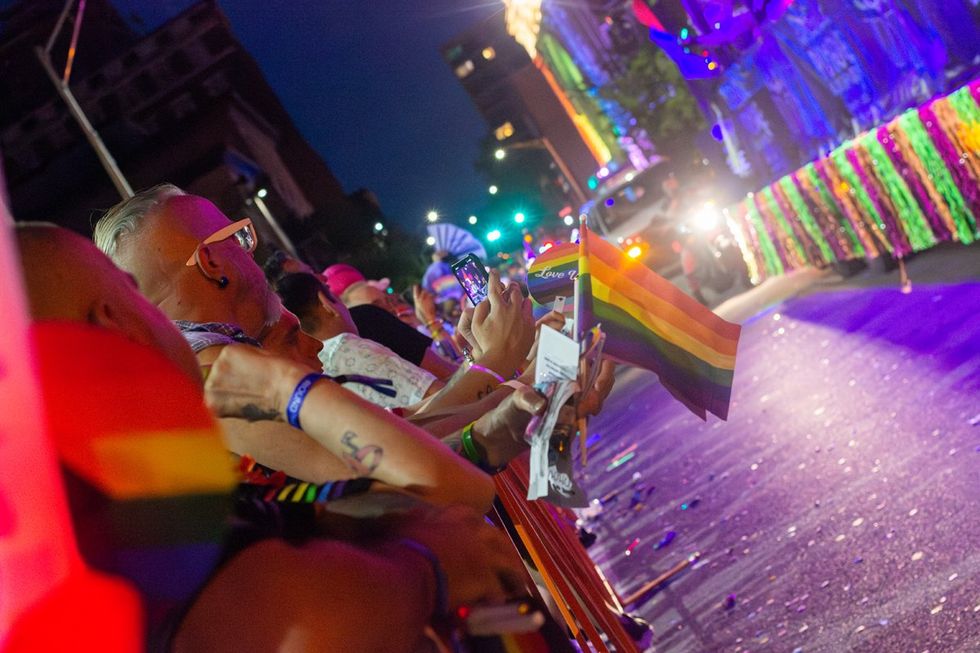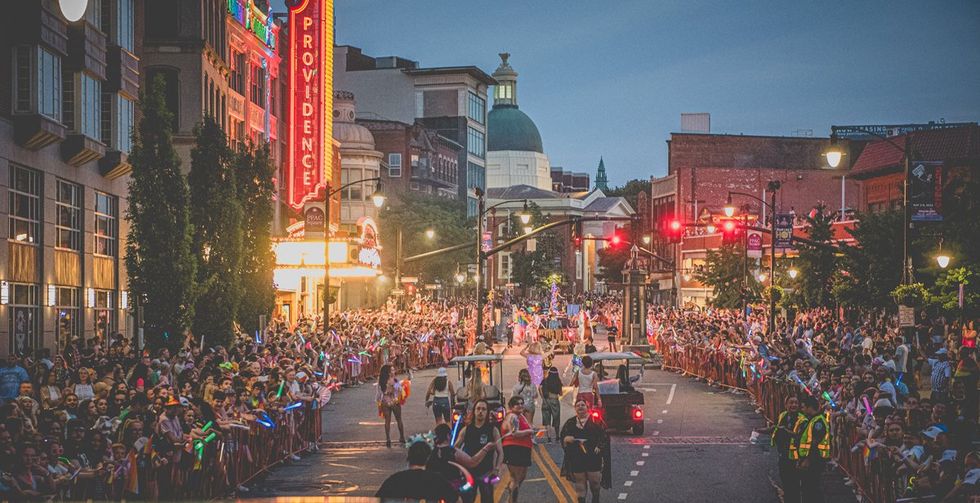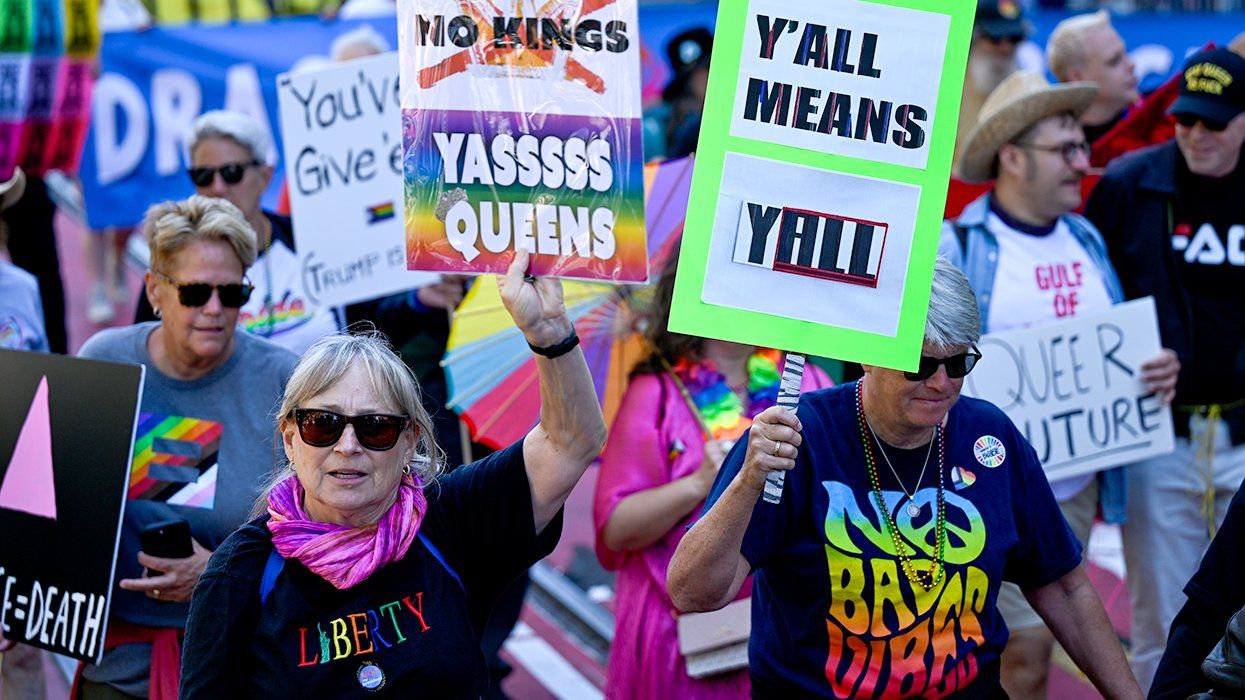Pride month might be over, but the truth is now, perhaps more than ever since the queer liberation movement began, we need to embrace Pride in all its meaning and promise year round. It’s for that reason that PRIDE is naming one more Grand Marshal this year, Devery Jacobs. She is someone who represents not only the best of what Pride is today, but what it must become in the years to come.
What does that look like? Jacobs explains the key to the future of Pride is in its past. “[Pride is a] time of protests, a time of being in retaliation against marginalization, against oppression, and also standing with people who continue to be marginalized in our community — and also a time for celebration,” they tell PRIDE. “Thinking of the origins of Pride and where we’re at now, and the strides that have been made thanks to our queer elders and ancestors. But also where we still have to go. [Pride is about] holding space for all of that at the same time.”
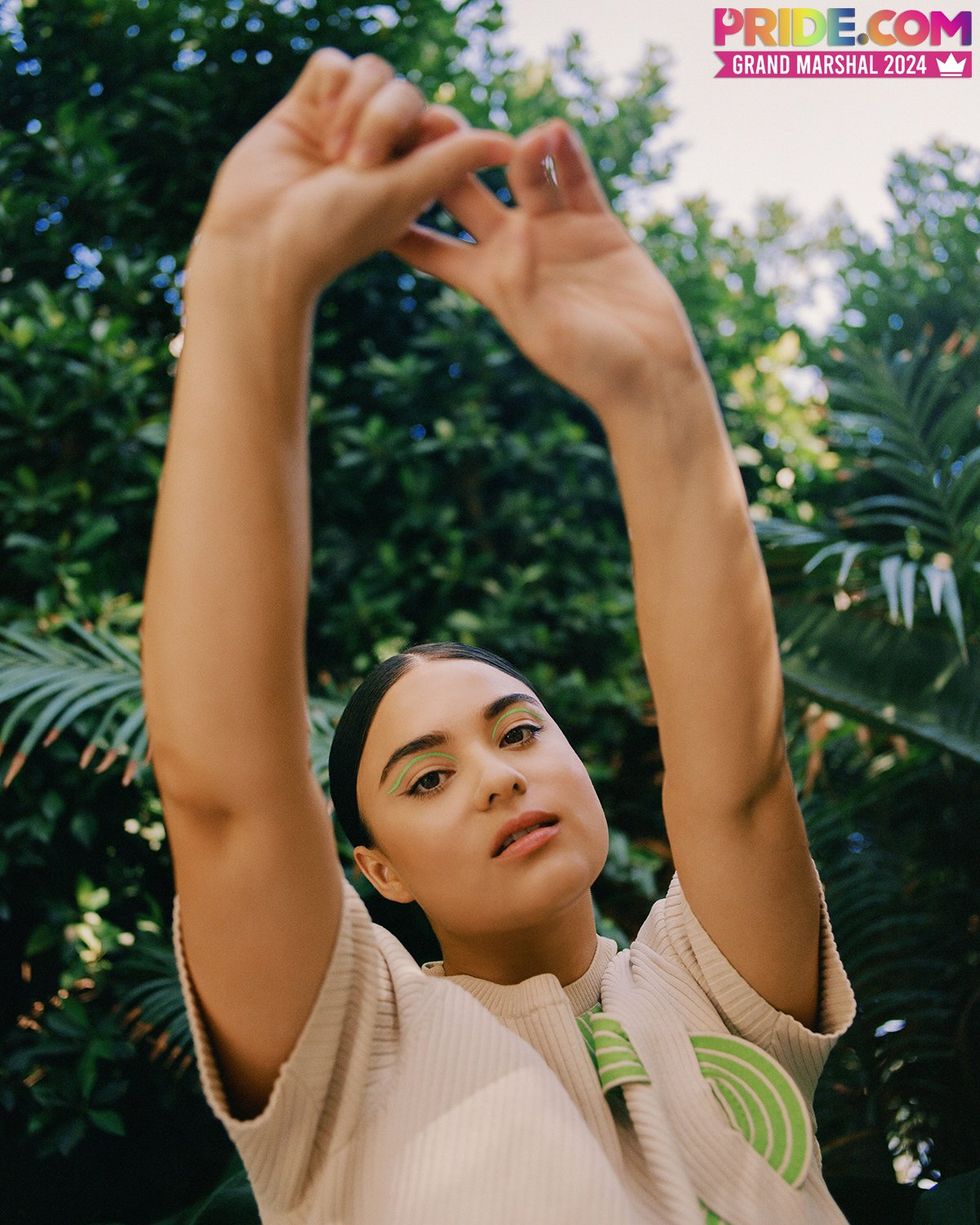
Ryan Pfluger
Writer, director, producer, and one of the most exciting and inspiring actresses working in Hollywood today, Jacobs is not afraid to use her platform to elevate indigiqueer stories to the mainstream. Whether that was in her role as Elora Danan Postoak in deeply beloved if short-lived Reservation Dogs, in Marvel properties including Echo and What If..?, and in prestige television like American Gods. Or in her own film, Backspot, which she both stars in and produced alongside Eliot Page.
As incredible as Jacobs is, even she can’t decolonize Hollywood or Pride all on her own alone. The question is, as we move forward into the months and years to come, how do we join the fight? How do we craft a better, more truly inclusive future for our community? Jacobs says the first step is a simple one: Listen.
“I think it’s a matter of listening to queer folks from different indigenous communities from different cultures and what traditional queerness looks like, in these spaces. It’s something that I’m still trying to do something I’m trying to uncover in my life,” she admits. “I’m Kanien’keha:ka, I’m Mohawk. But I come from a community that has been really involved in Catholicism for a couple hundred years. So, there’s a lot that we held on to and that we were able to preserve, but there’s also a lot that’s been lost. And so it’s a matter for me of figuring out and reconnecting to what the traditional Kanien’keha:ka version of queerness looked like and what our ancestors had.”
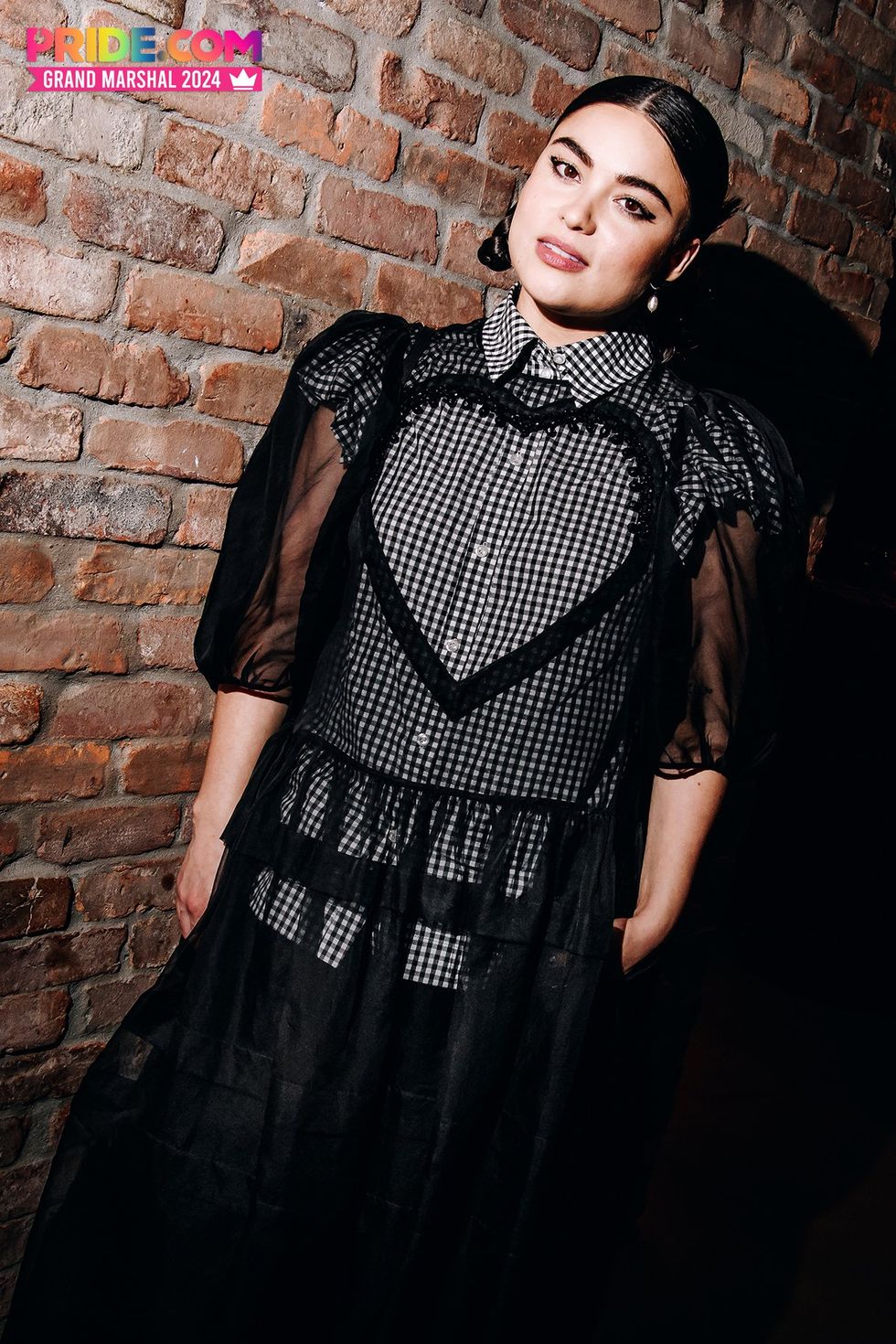
Nina Westervelt/Variety via Getty Images
While her journey is a personal one, Jacobs talks powerfully about just how connected we are as an LGBTQ+2S community. “Queer people have always been here, it’s like one of the few communities that spans across every culture, every ounce of this planet,” she says. But that doesn’t mean it won’t take intentional effort to be responsive to the needs of a part of our community that’s all too often overlooked. “Right now, it feels like native folks, as a whole, can be invisible in the U.S., let alone within queer spaces. So that’s something that needs to be factored in,” Jacobs explains. “There’s just so much to learn. I would love to see people be more open to that knowledge, because it can be healing not only for our communities, but for wider queer communities as well.”
This ethos also factors into the way Jacobs approaches her career as a storyteller. “As an actor, I am willing to tell stories that are outside of myself that are from different geographic locations or class backgrounds, or what have you. When it comes to being a creative behind the camera, like in the instance with Backspot or Reservation Dogs or short films that I’ve done and scripts that I’m writing, I need to have some kind of in where it’s a story that interests me as an artist, but also has some reflection of my identity, whether that’s me as an indigenous person and me as a queer person in the case of Backspot.”
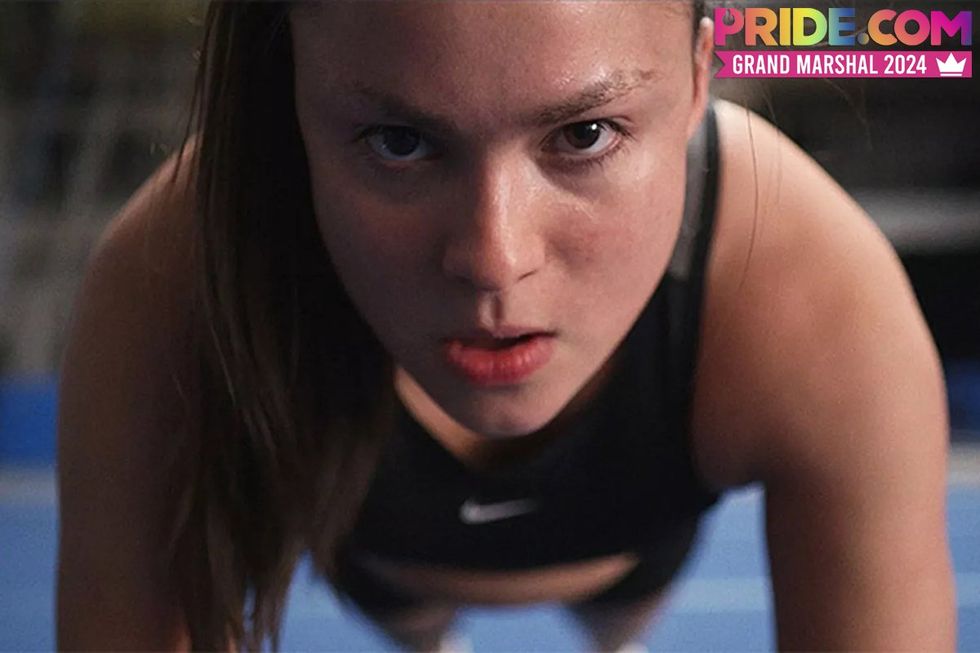
Courtesy of XYZ Films
While the film was helmed by nonbinary director D.W. Waterson, who also co-wrote it alongside Joanne Sarazen, Jacob’s fingerprints can be felt all over Backspot, too. The film follows Riley (Jacobs), an ambitious, young, queer, native woman who gets recruited onto a highly competitive cheer team. It’s very queer, but it’s not a coming out story, or one that centers around romantic entanglement, or grappling with her queer identity. This didn’t happen by accident. “I feel like so often with queer cinema, it’s about sexuality. So many misconceptions about queerness. Like, ‘oh, well, why are you talking so much about who you have sex with? Why are you making that your entire personality?’ For me, being queer isn’t only [about] sexuality. It’s a view of the world. It’s queer theory. It’s being in community with other queer folks. That was something that I was really missing from queer cinema. Not only the romantic aspects, but also who we are in relation to, like queer elders and peers,” explains Jacobs. “People come out, and then they lead whole lives after that.”
As thrilling as it is to see a less conventional indigiqueer story, Jacobs and Waterson’s refusal to make something cookie cutter also presented challenges when it came time to secure funding. “We wanted to go the indie route, we wanted to make sure that other studios, or networks, didn’t get their fingerprints all over this. We wanted to make what we wanted to make,” she recalls. While Netflix’s show Cheer raised more awareness about the world of competitive cheering, would-be producers balked for an eyebrow raising reason. “Some of the feedback we got from funders was that, ‘We love the script. We love the story, but we didn’t select it because we just didn’t understand why the protagonist was indigenous.’ They were essentially accusing us of just pasting an indigenous lead actor, as if to check [off] diversity or something.”
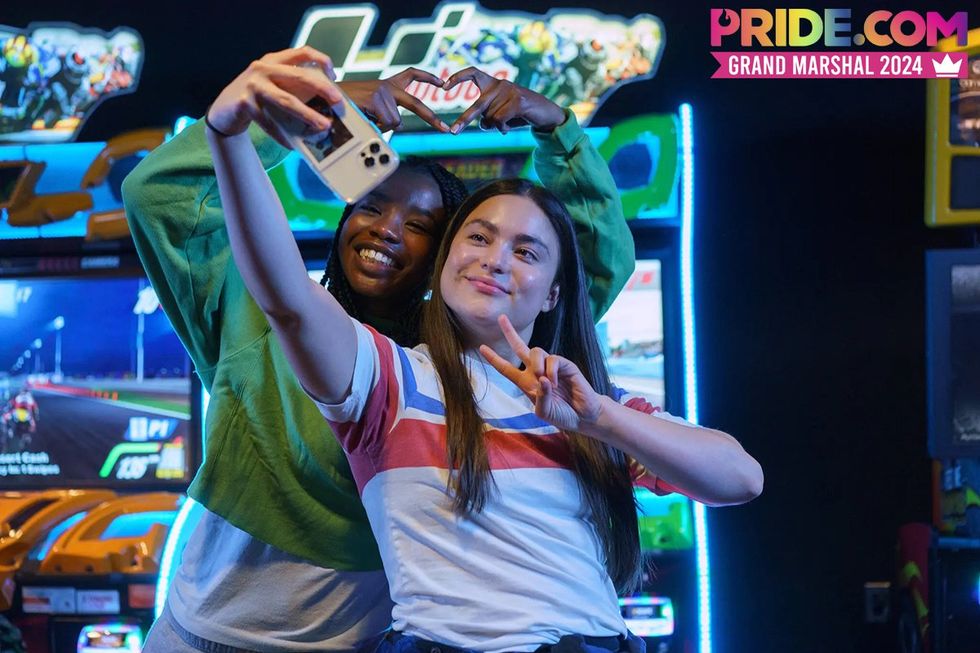
Courtesy of XYZ Films
The idea was preposterous. “I’m a producer on the film. I helped shape the character and create it and it [was like they were] telling me to choose a lane. This could either be a queer film, or it can be an indigenous film, but there can’t be that overlap. It was tough to get through that,” she recalls. Thankfully that all changed when they found the right executive producer. “I had a general meeting with Elliot Page... and he was like, ‘this script sounds incredible.’ So when he came on, he lent his support to the story.”
The film was ultimately made the way both Jacobs and Waterson dreamed of. The result is a fascinating character study set against the backdrop of the incredibly high pressure world of elite competitive sports, that proves to be an inspiring tale of perseverance and athleticism as well as a celebration of queerness. These kinds of stories are not only a good yarn, but also impactful in the way that broadens our scope of what queerness is and looks like.
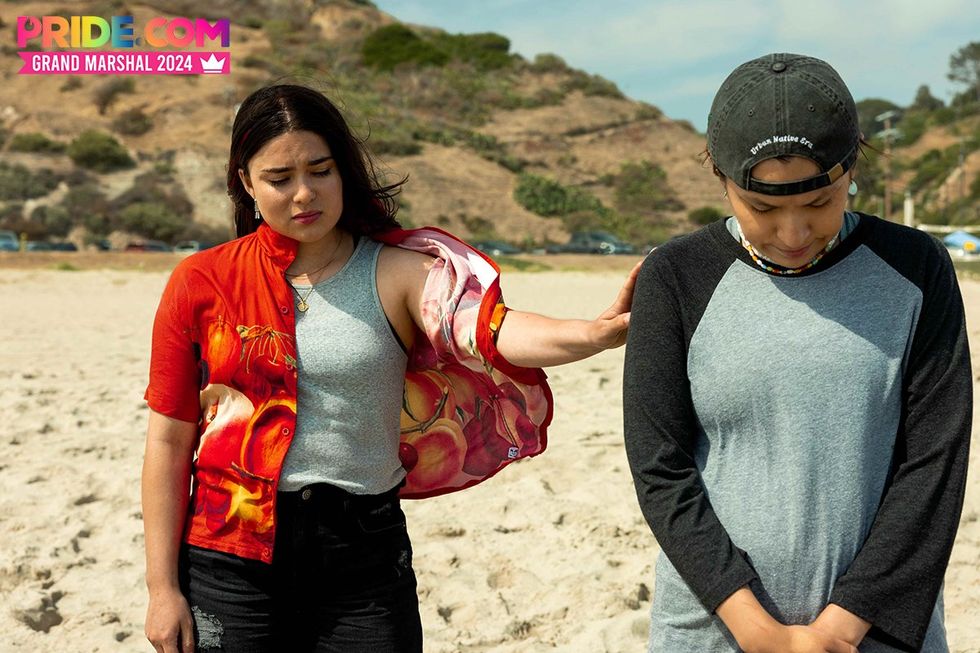
Courtesy of FX Networks
The same can be said about so many of Jacob’s roles, whether they be in the highest of high-profile projects like Marvel’s Echo, or in the critically acclaimed, incredibly beloved, and shamefully underseen Reservation Dogs. It’s been nearly a year since the show came to a close — much sooner than its fans would have liked.Yet Jacobs is still processing just how impactful that trailblazing series was and is. “I haven’t processed a whole lot over the past couple of years, because it’s just been such a run and gun time. But we are all definitely in a different place now than when we started almost four years ago,” they say. “I have mostly felt the ripples through Indian country, of what this series means and hearing the outpouring of love and grief over the ending of the show, I think has been really overwhelming, but in a good way.” While the series was an instant critical darling, it has yet to translate into awards, much to the shock of anyone who watched it. “I don’t know if that’s the space where it’ll have its most resonance for us,” Jacobs muses. “We told this story for our communities, and our nations, and our tribes. I’ve been able to feel that part of things for sure.”
So much of what Jacobs does is for her community, whether that’s telling their stories, or even coming out. “I was an adult. I feel like I walked through the world with blinders on for a really long time. As I started going to therapy, and actually getting in touch with myself, I was like, ‘Oh, I’ve been gay. I’ve been that way,” they recall. “I had come out first to my siblings, and I let them know that I was feeling this way and this is who I was, and was still figuring it out. And it was still really tender and I’m uncovering this thing about me. My younger sibling was just like, ‘yeah, that makes sense,’” she laughs.
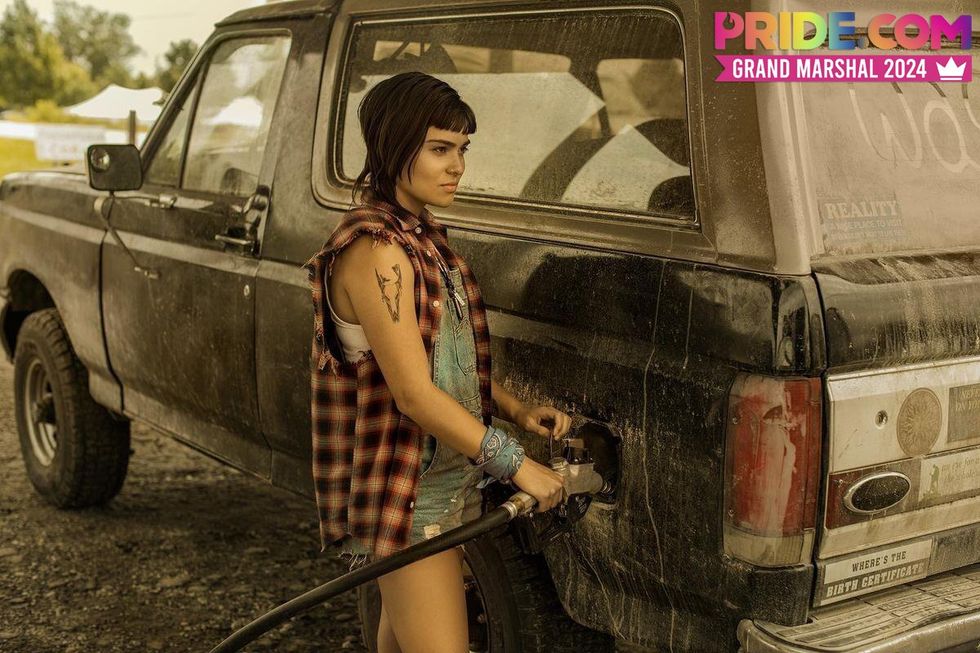
Jasper Savage / COURTESY OF AMAZON PRIME VIDEO
“I was never fully in the closet and when I had come out [it was] around the same time I was filming American Gods, where I play a bisexual Two Spirit character named Sam Black Crow. I was playing a queer character but I also thought it was important to just be out and as myself. Because that same year, I had read a study from the Trevor Project that was talking about queer youth of color, and of all LGBTQ+2S youth of color, indigenous youth died by suicide at the highest rate,” she recalls. “For me it didn’t really feel like an option to be in the closet. I was like, ‘I’m still figuring this part of myself out, but it’s important for me to be able to have some visibility for that rural native kid on a res somewhere who feels like they’re trapped or feels like they can’t come out.”
“That was the turning point,” she says. “I haven’t looked back since, and from that point on, I’ve been able to full throatedly stand in my queerness and find my place in this community. But it wasn’t always like that.”
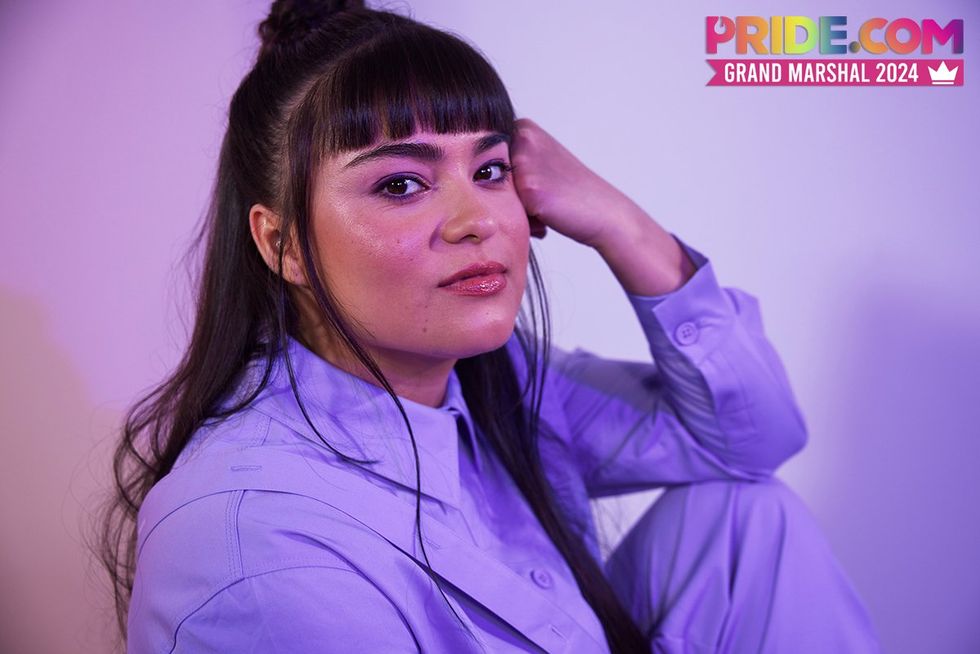
Corey Nickols/Getty Images for IMDb
While Jacobs wants to make space and inspire queer kids on the res to feel like they can come out, she also wants them to know that they don’t owe anything to anyone on that front, particularly when it’s an issue of safety. “Just because you’re out to some people doesn’t mean you need to be out to everybody. Trust the process and your timing of where you’re at with everything. If you do choose to come out, [know] that there is a community that is waiting with open arms and is willing to embrace you and ready to have you step into it,” she says.
Jacobs is a natural leader who’s clear in her mission and passions for uplifting her community, but as we said, no one can do it alone — not even her. As we move forward into another year, one that’s full of queer joy and celebration, and also one that’s full of uncertainty and struggle, community and solidarity is everything — but knowing how to step into that can feel daunting. Jacobs has some ideas of where to get started: Along with listening, it’s about taking the initiative to educate ourselves.
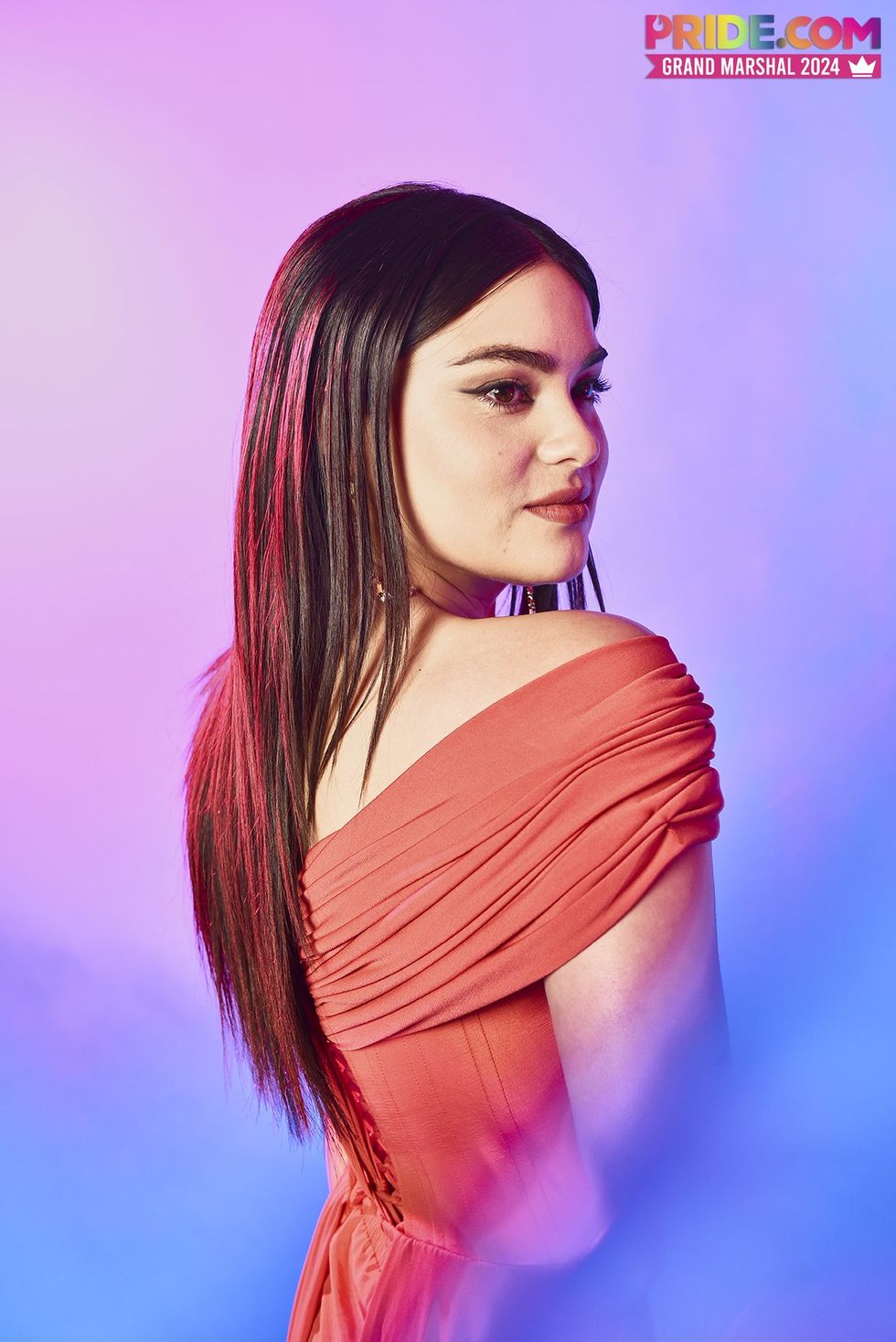
Irvin Rivera/Contour by Getty Images for IMDb
“One of the things that can be done is learning about whose territory you’re on, learning about that nation, and for people to educate themselves further on whose territory they’re residing in. There’s a website called Native-Land.ca where you can literally see which nation or tribe you’re on by typing in each city,” she shares. “There’s a lot of, like 101, things that people can be doing to just set the stage so that when there are further conversations to happen, that there’s at least a groundwork to know where we’re operating from. A lot of people still don’t even realize that there’s over 500 different nations and tribes across North America, let alone global indigenous folks.”
“For audiences as a whole, supporting queer cinema, supporting indigenous cinema, supporting indigenous queer projects, is a way to tangibly show the industry that there is an appetite for these stories,” she adds. “There’s just a lot of learning to do and being open to that, and supporting queer and indigenous voices in ways that are tangible whether buying a ticket or following or sharing posts and amplifying the work that these folks are doing.”
Jacobs’ ability to blend activism and art is such a powerful reflection of who she is — and it’s the kind of energy we all must all bring as we move forward and forge a new path for our community, rallying around what Pride means today and what it will mean for years to come.


